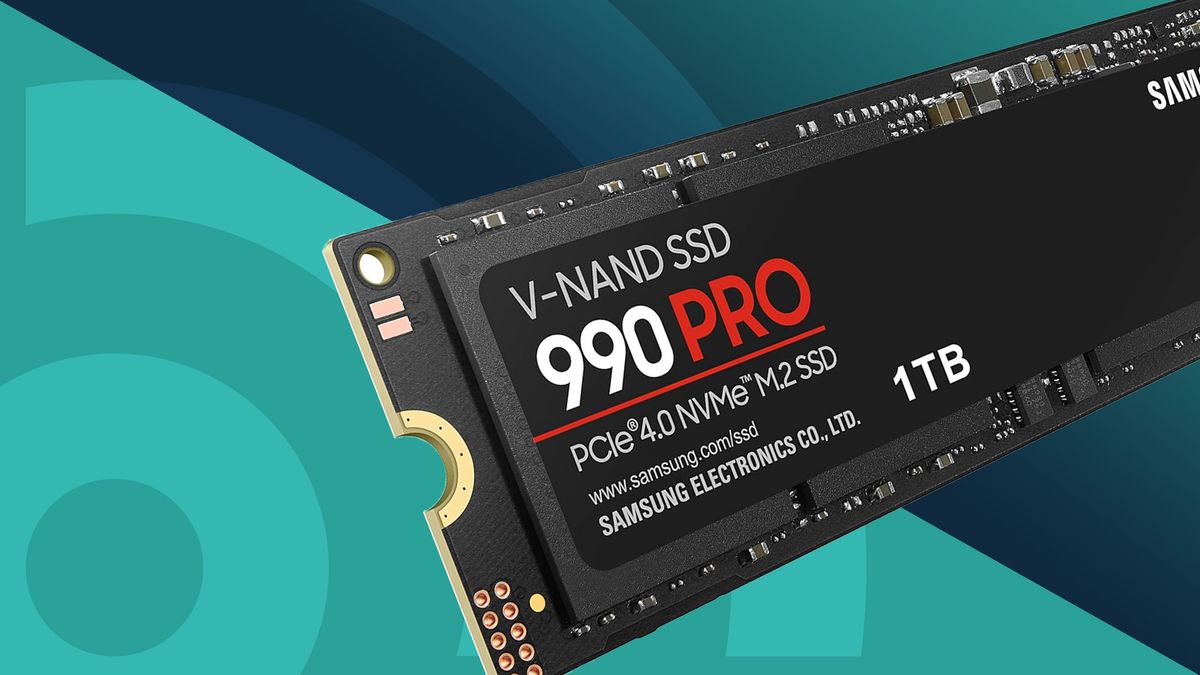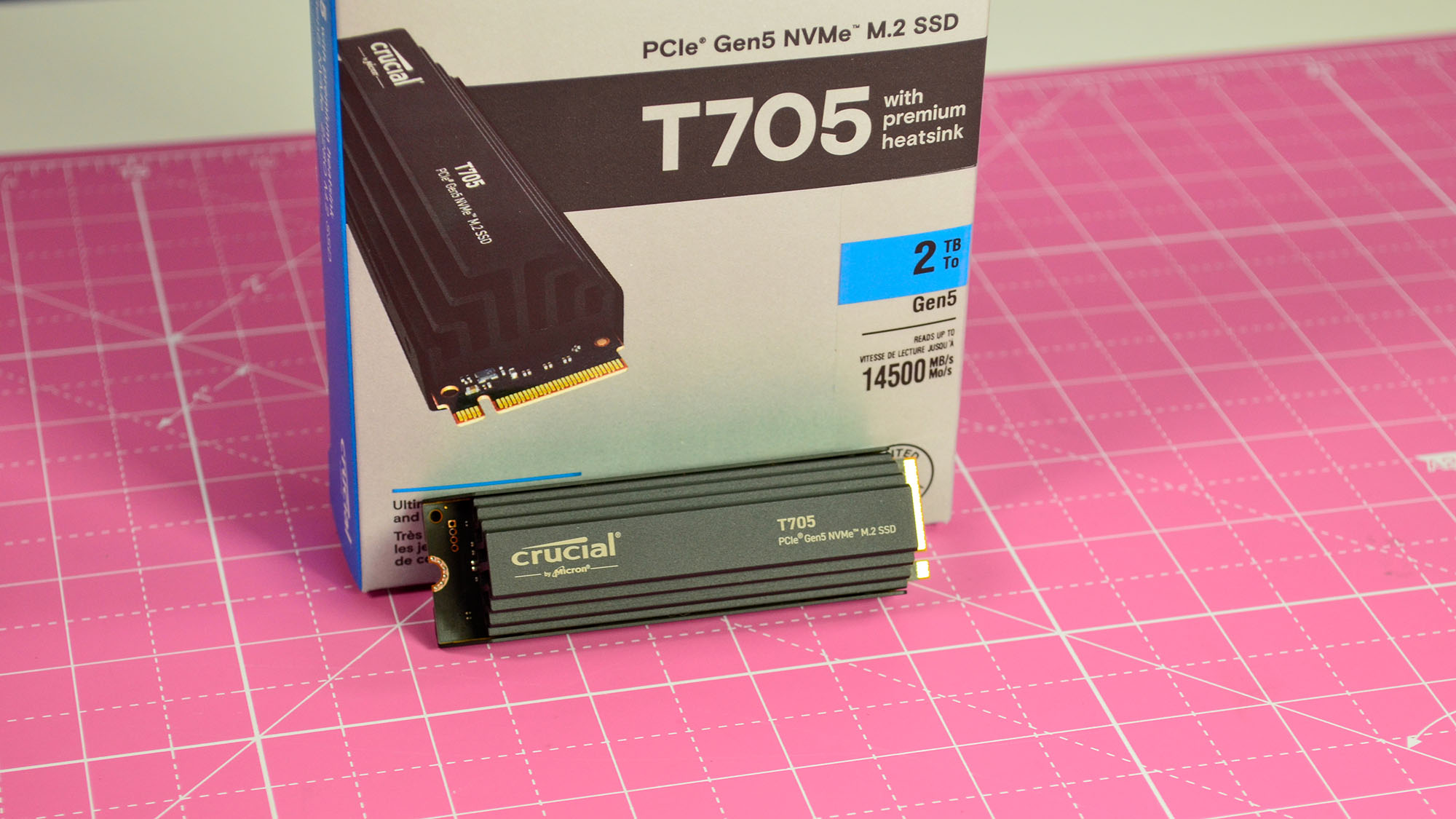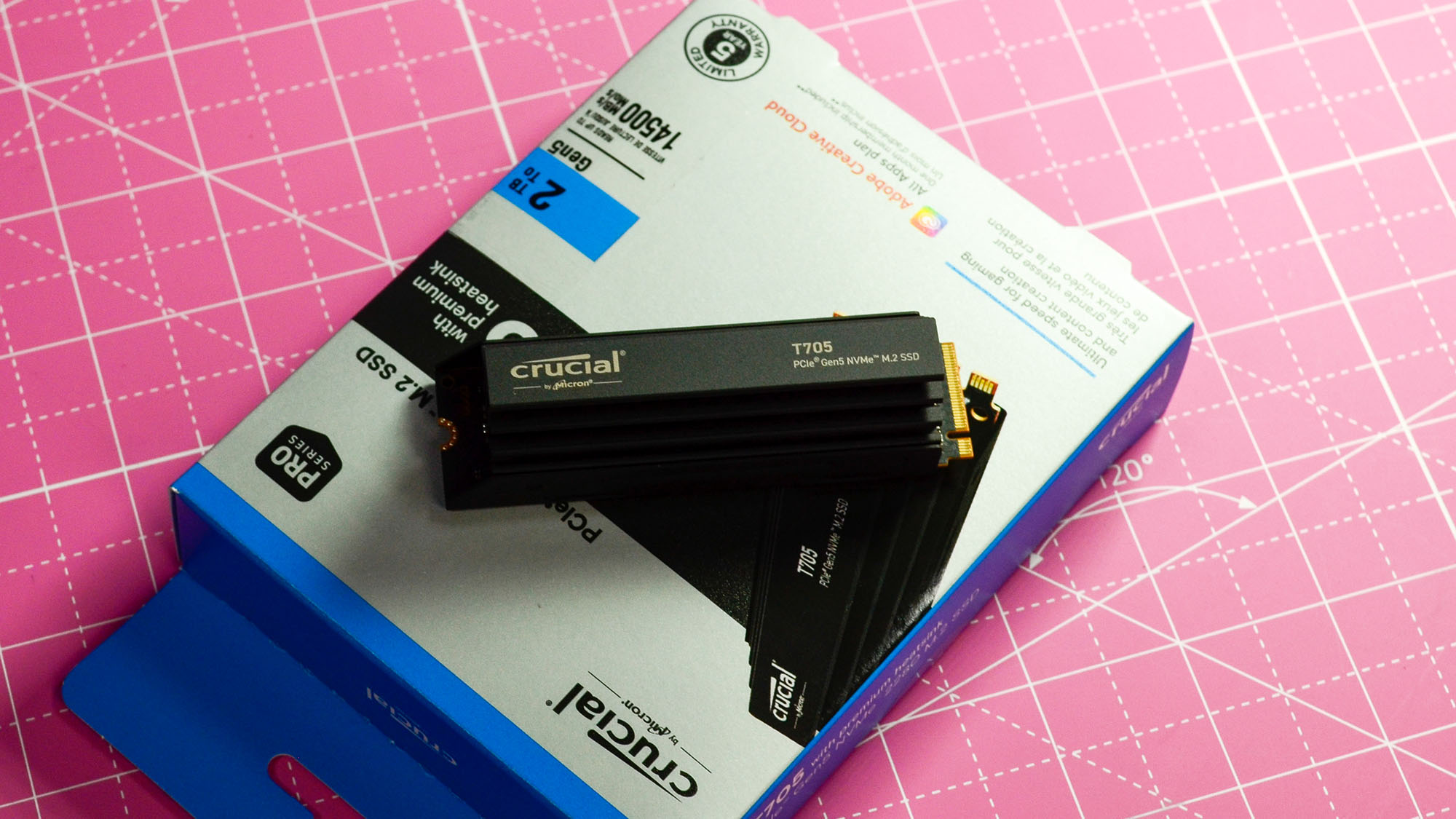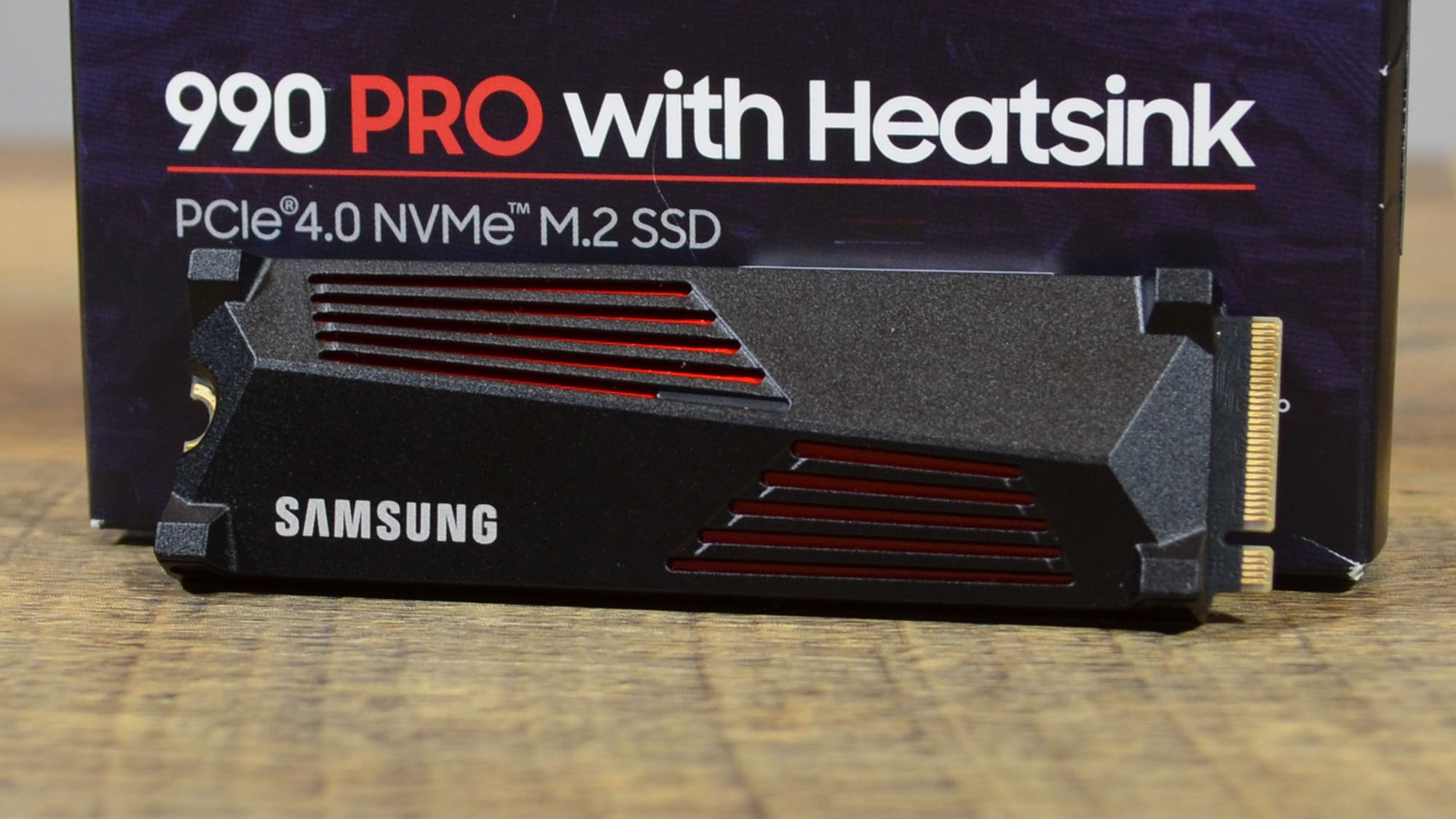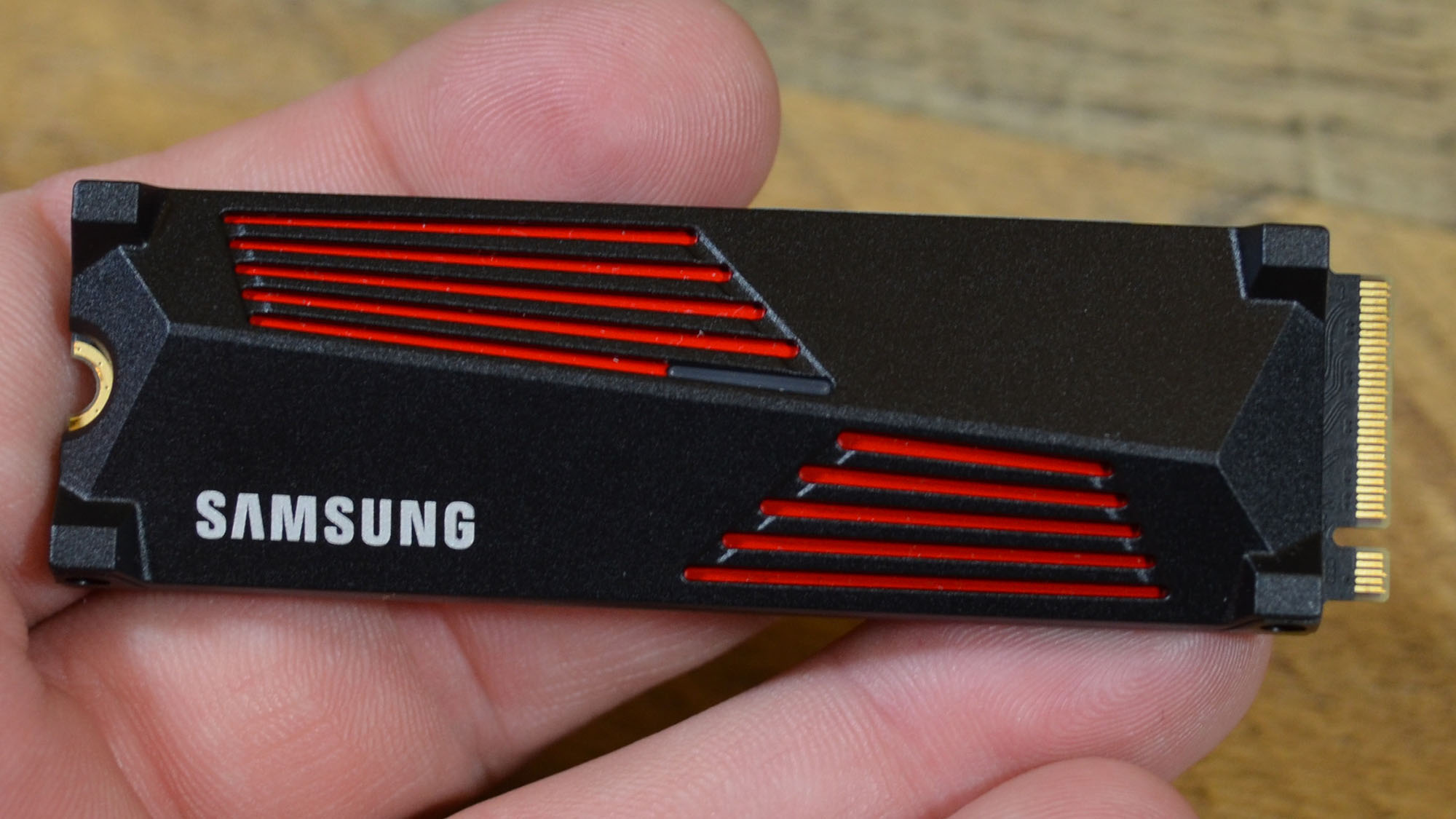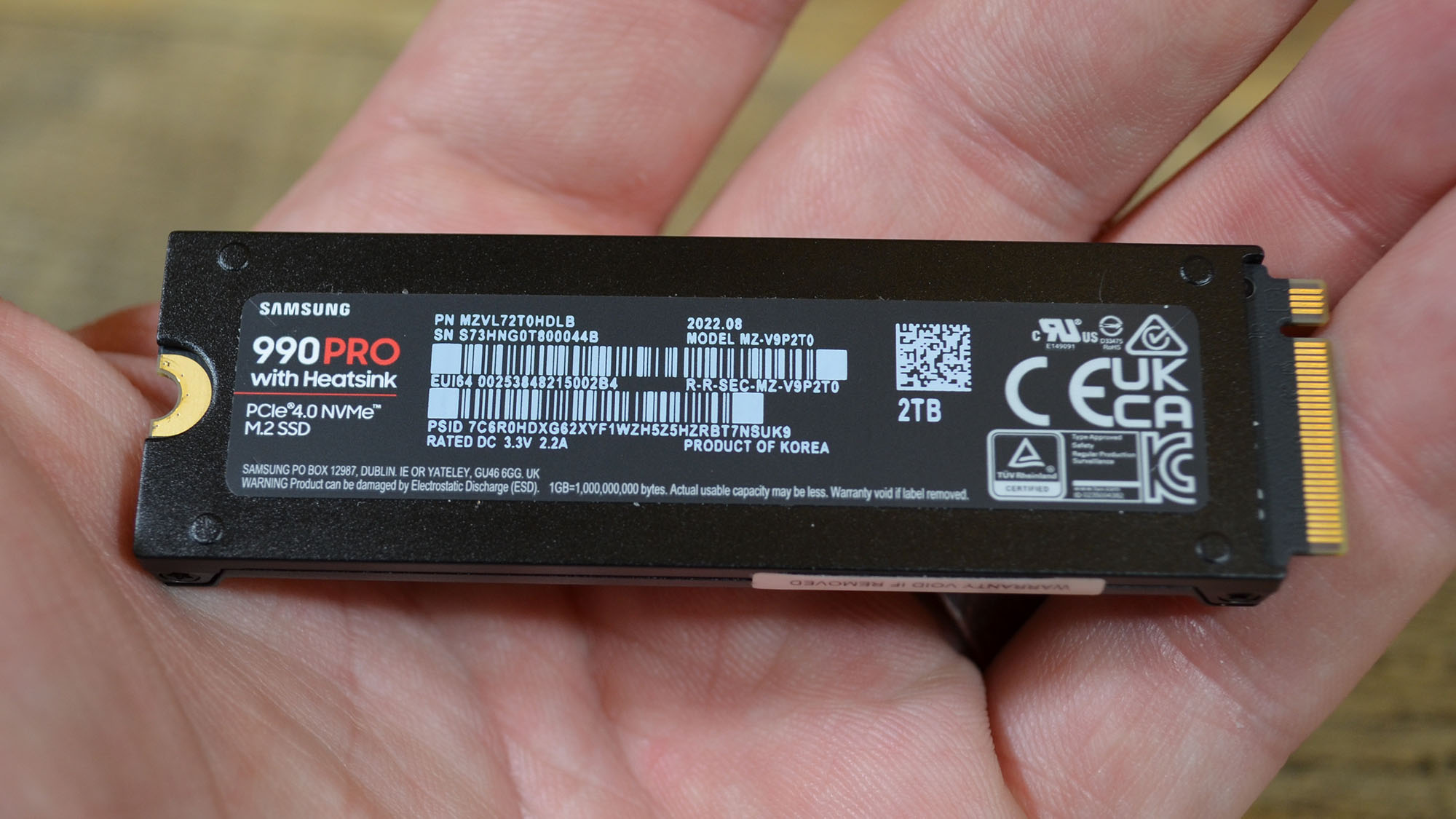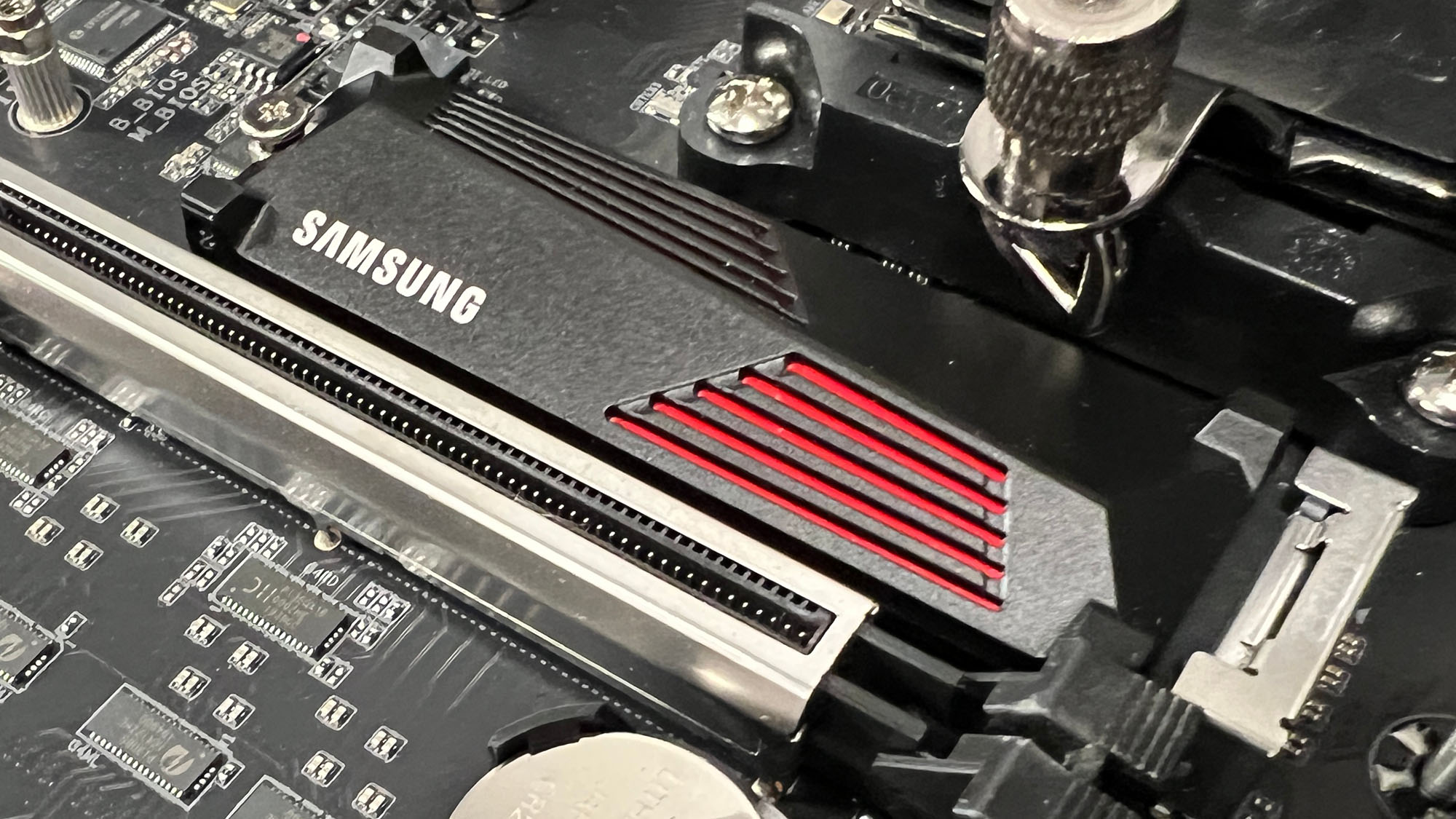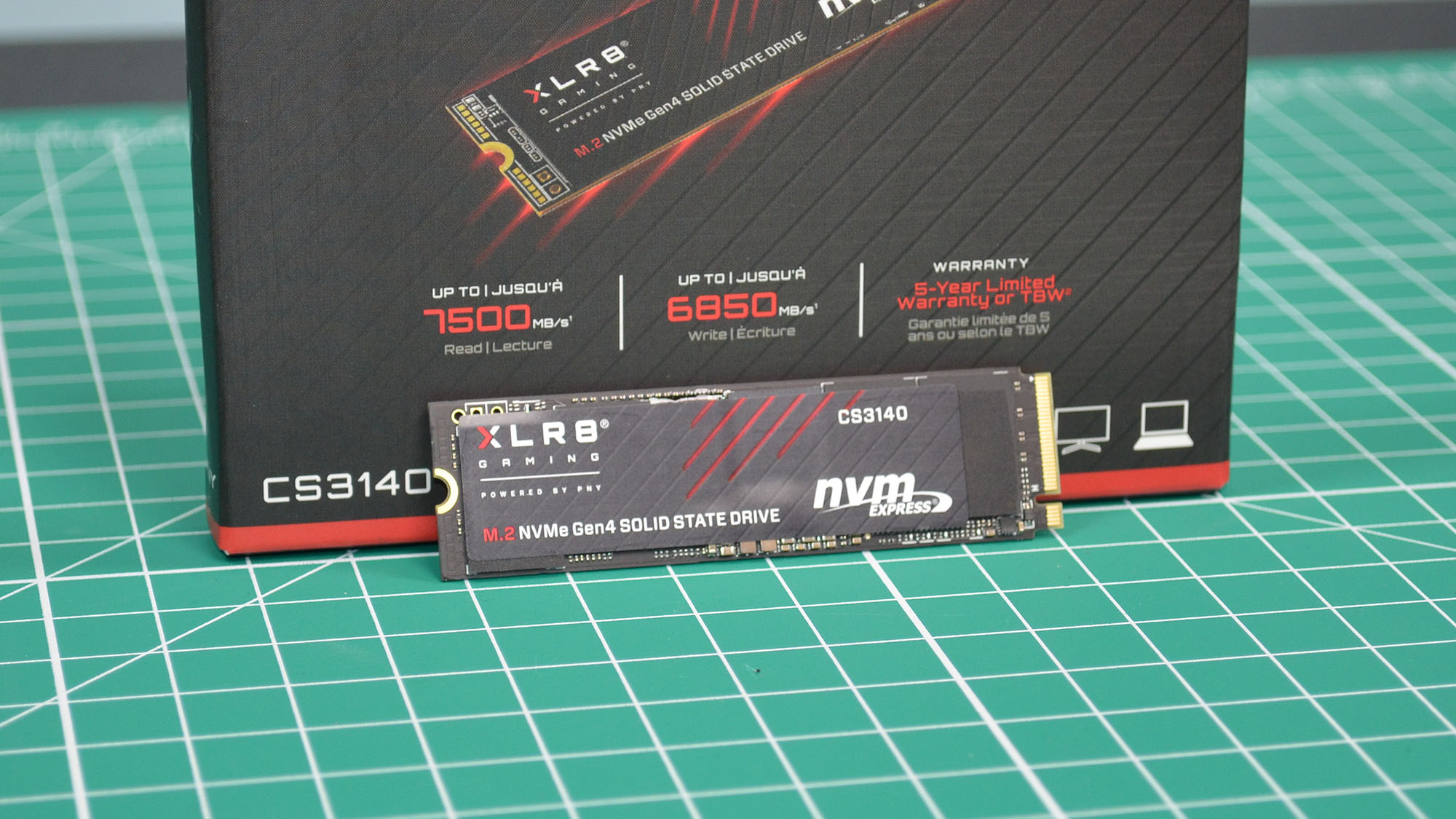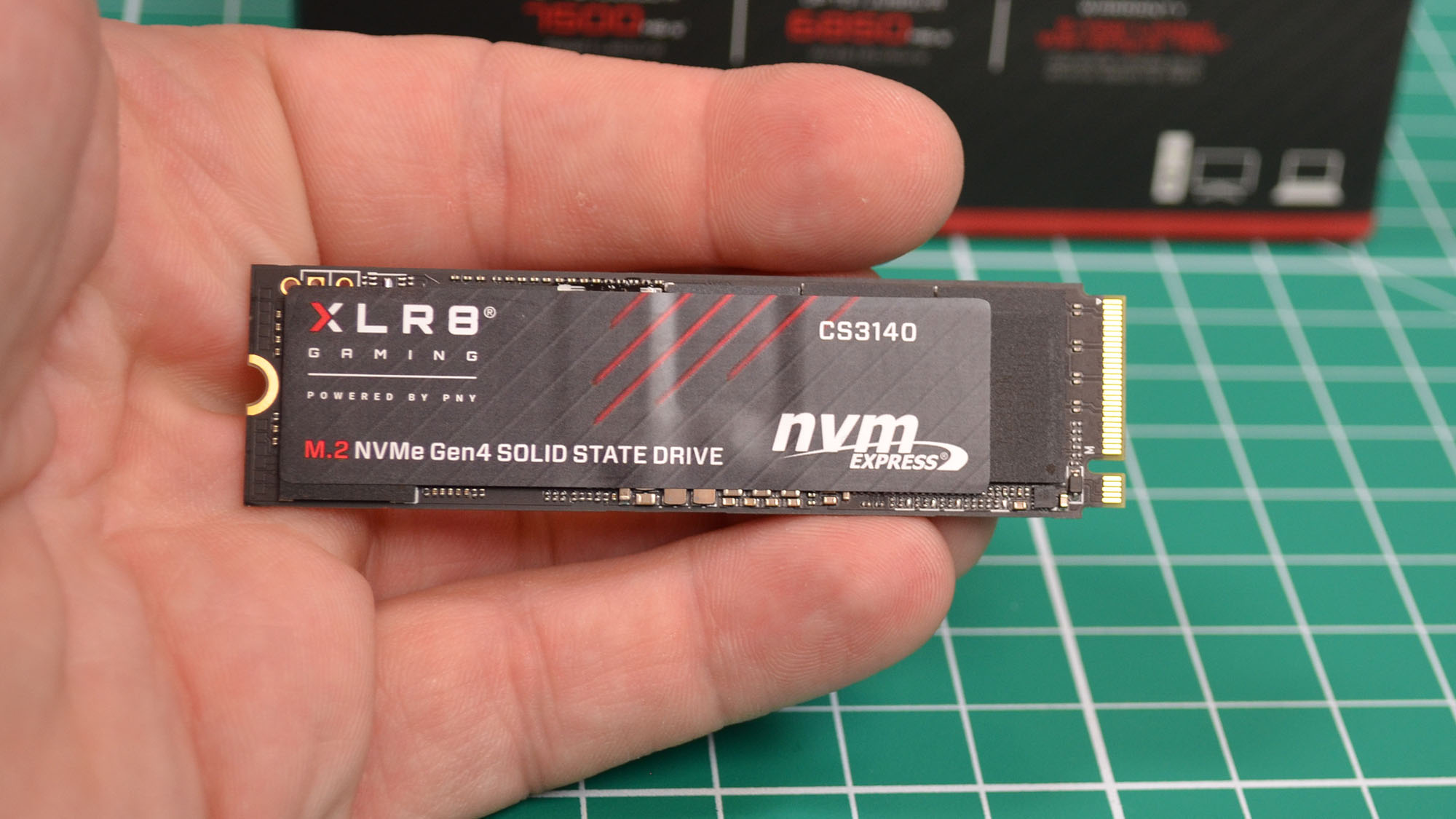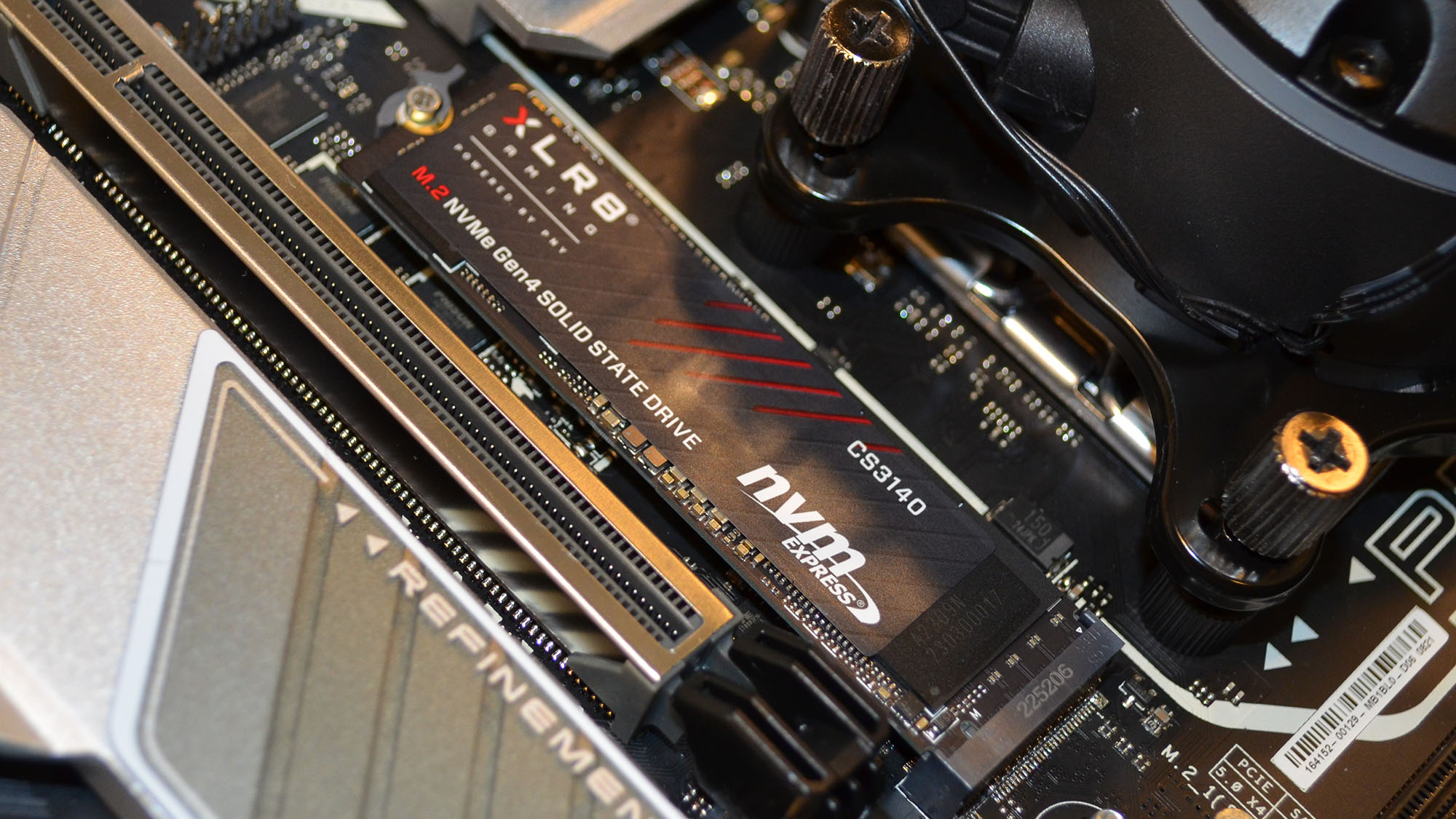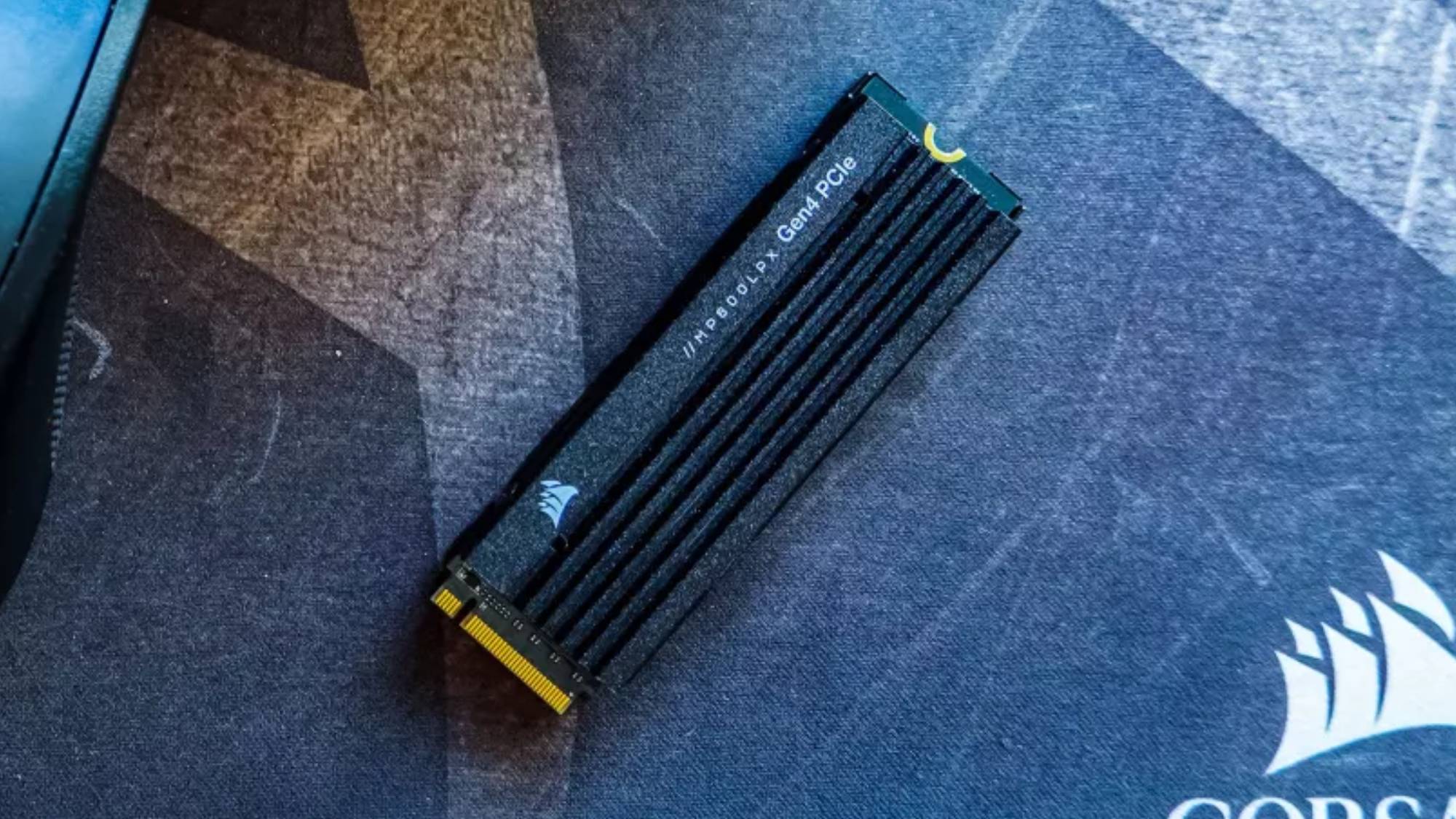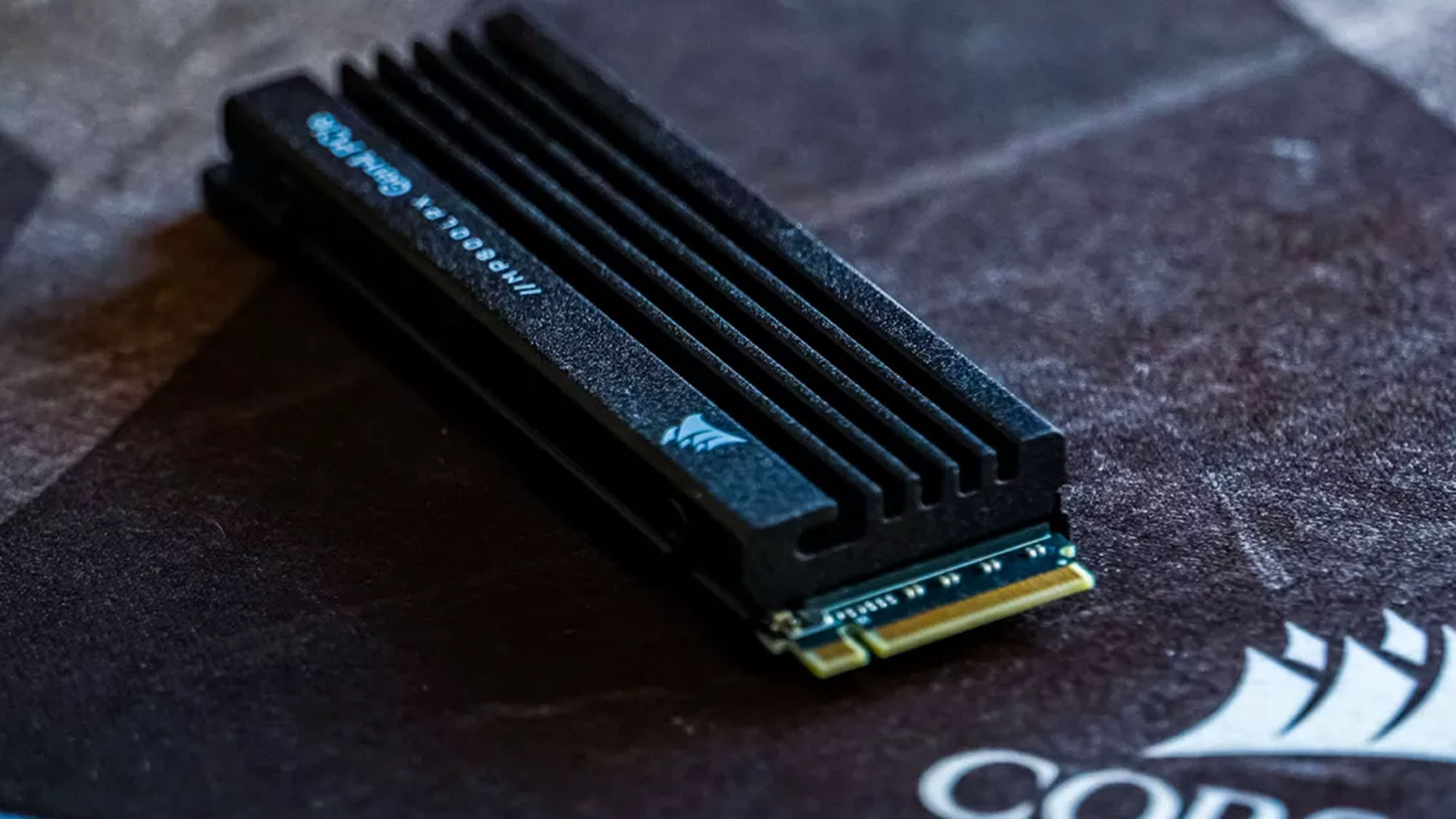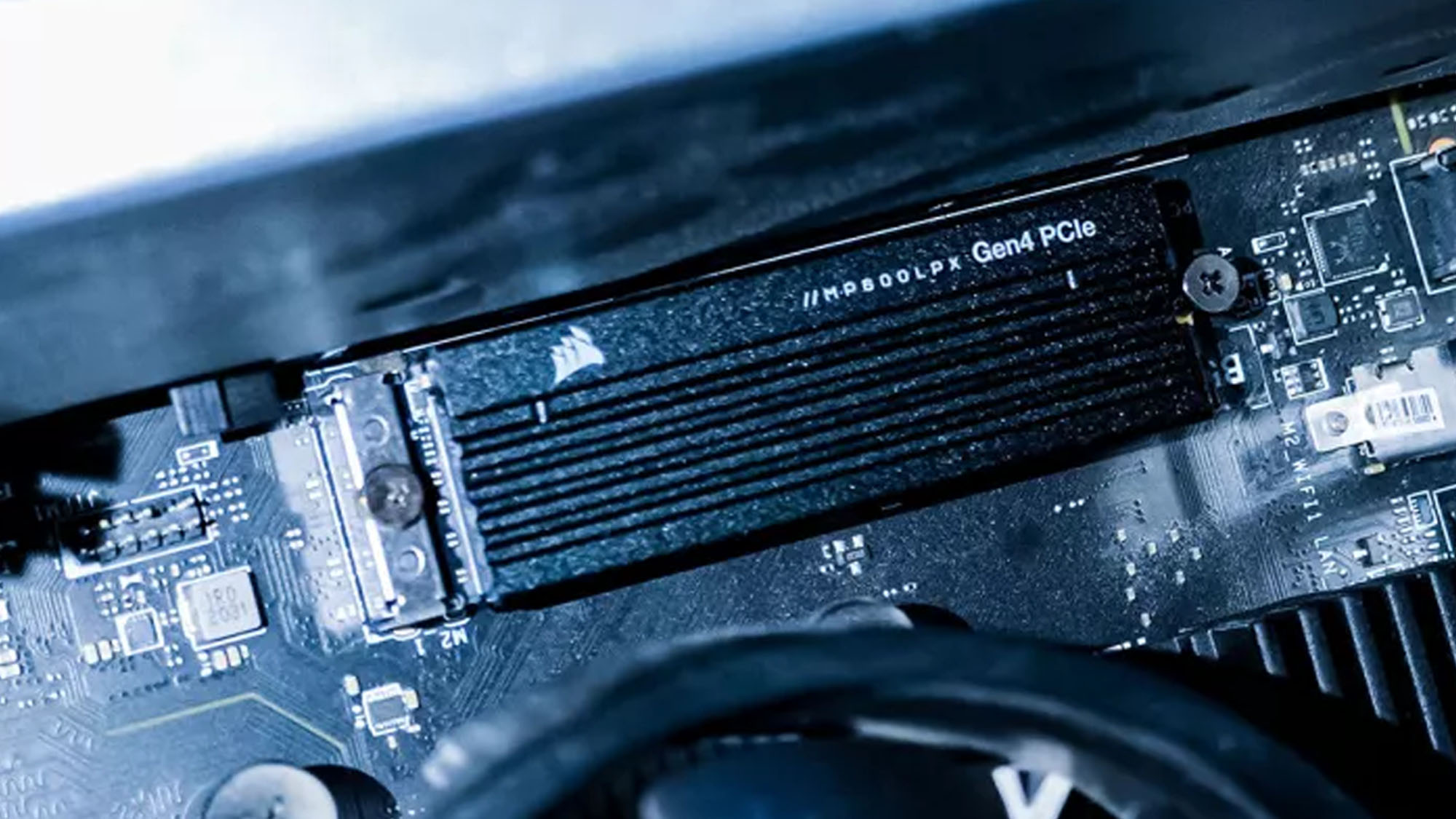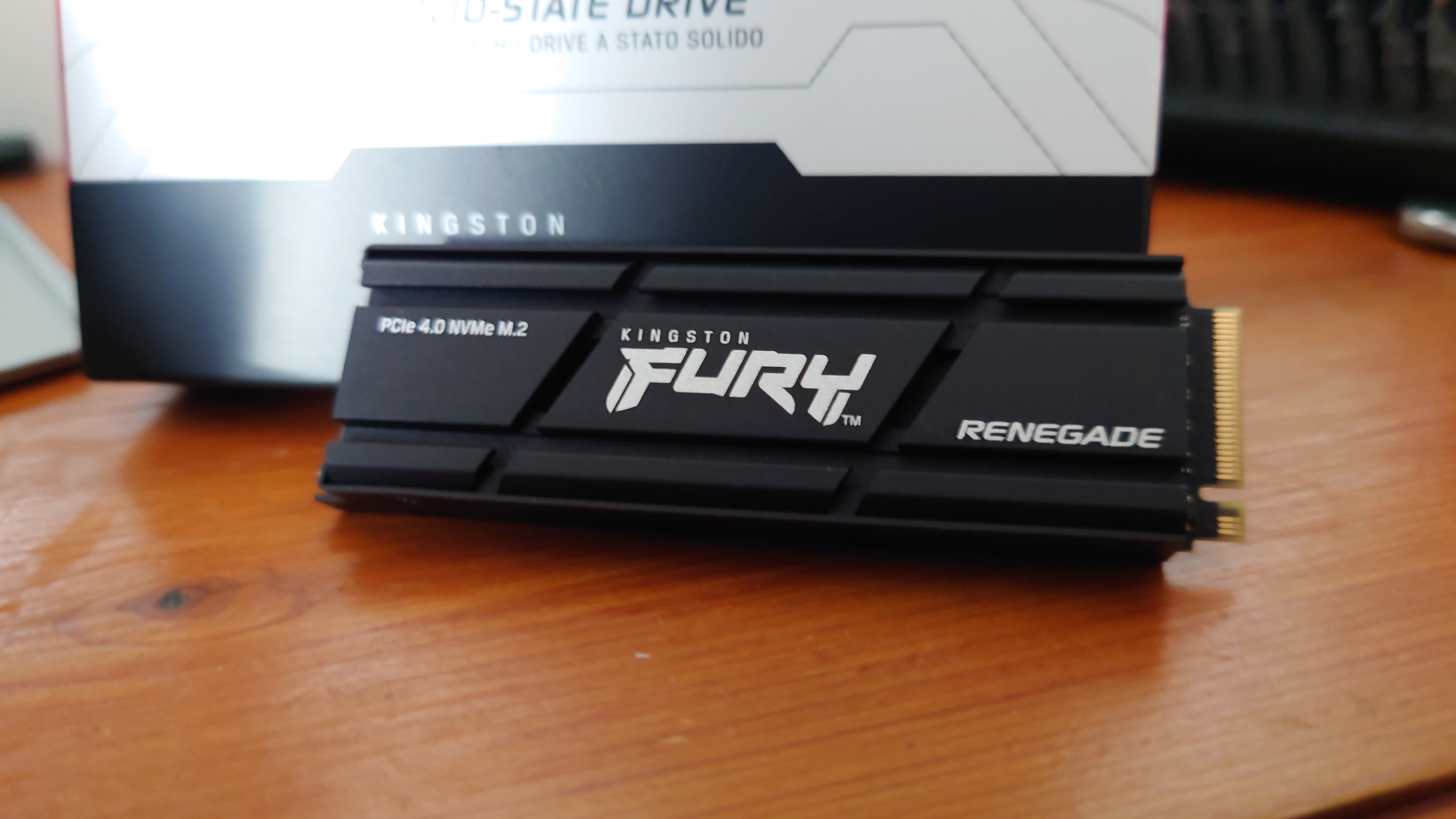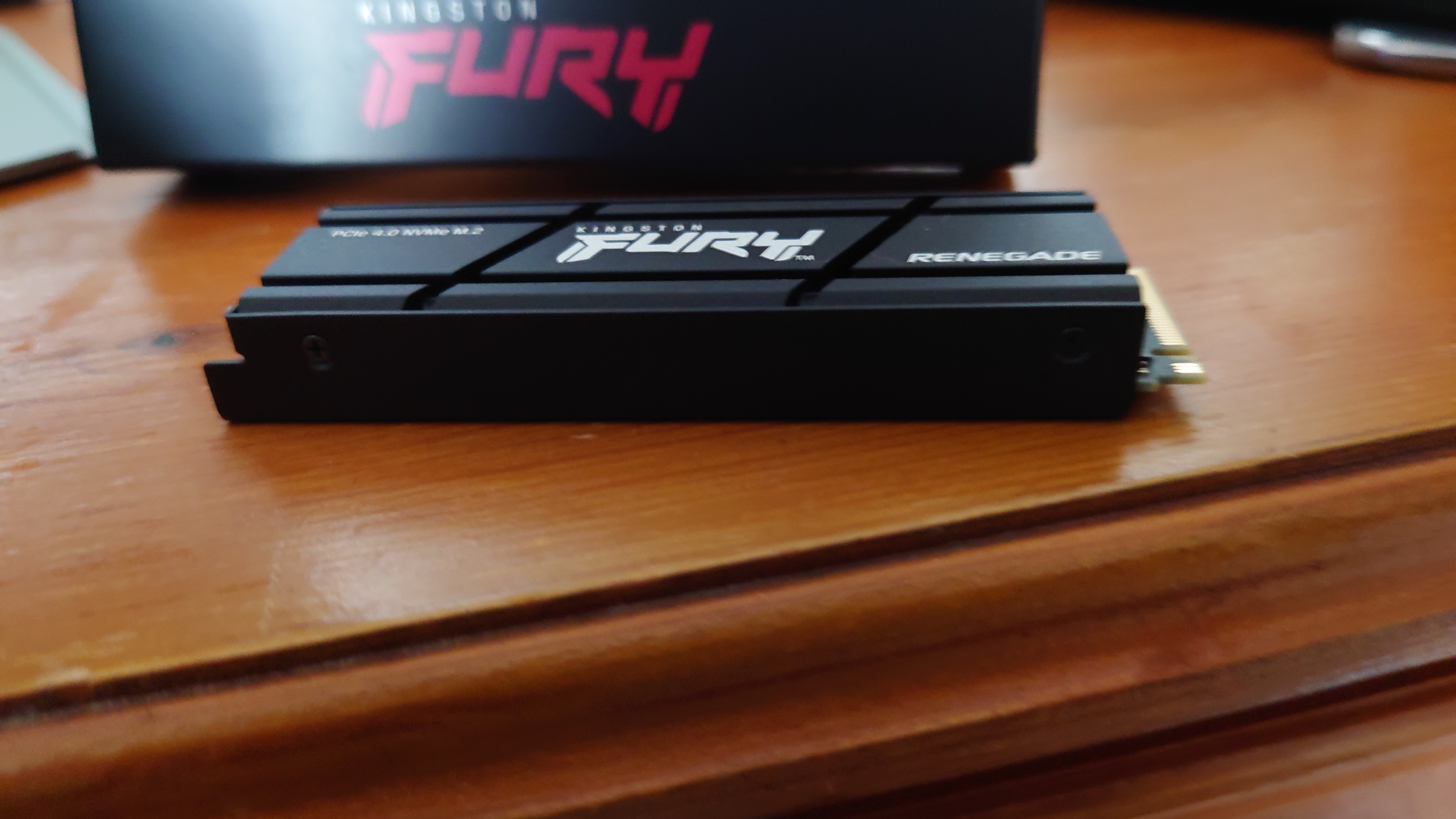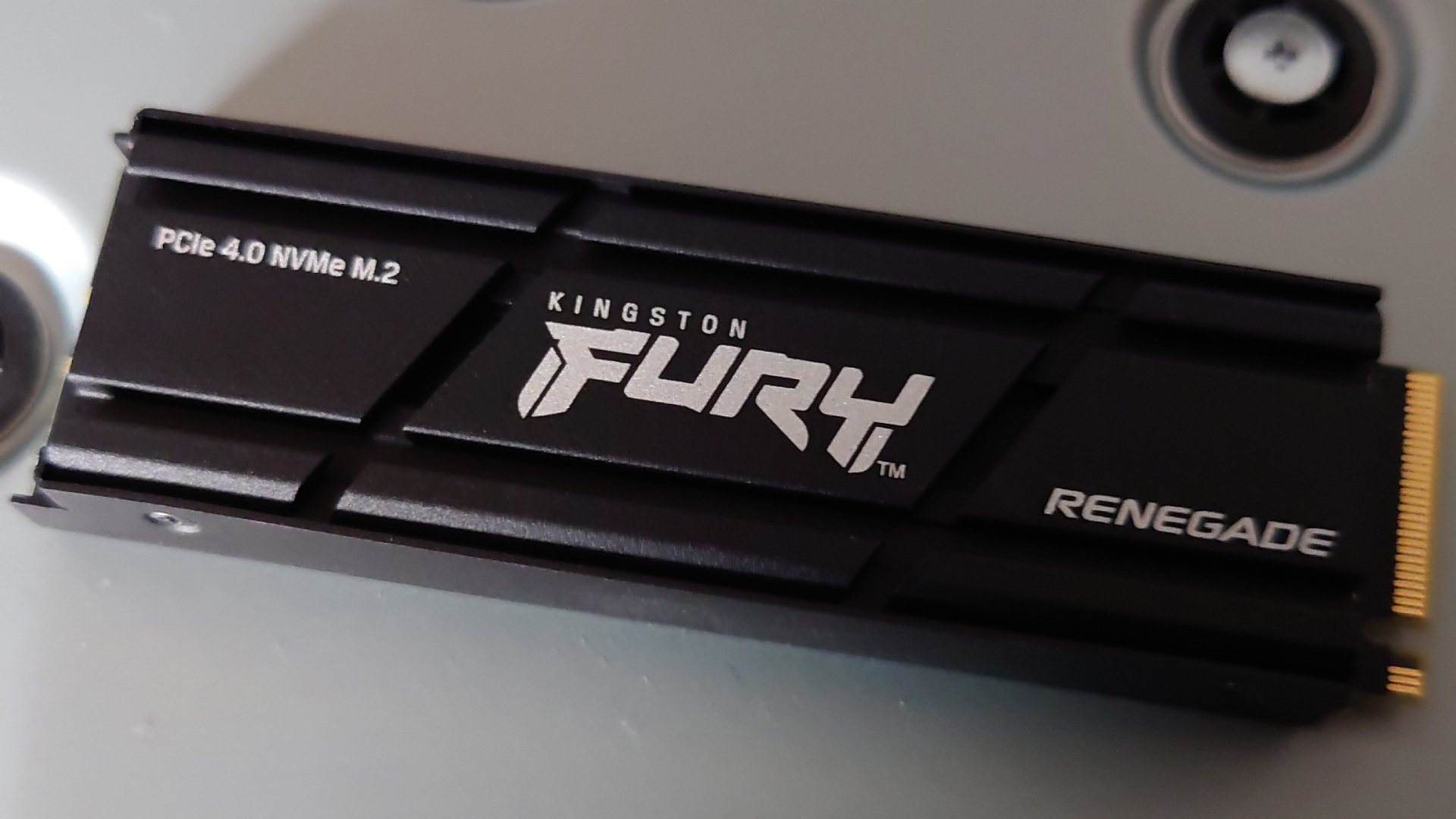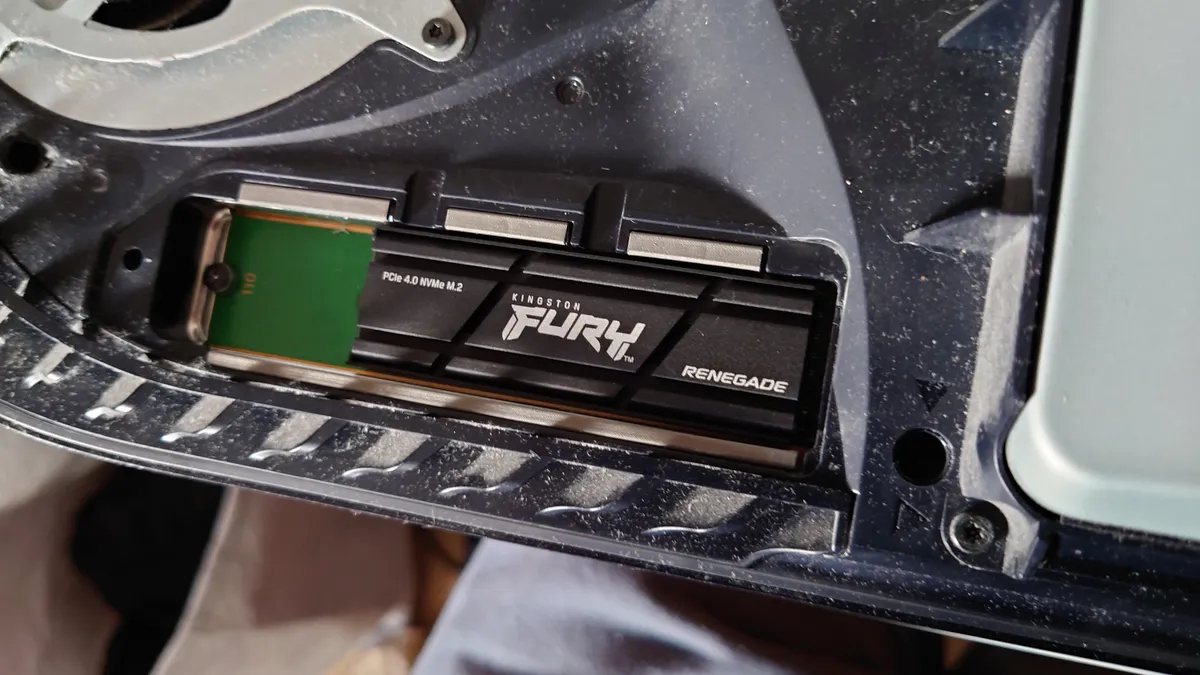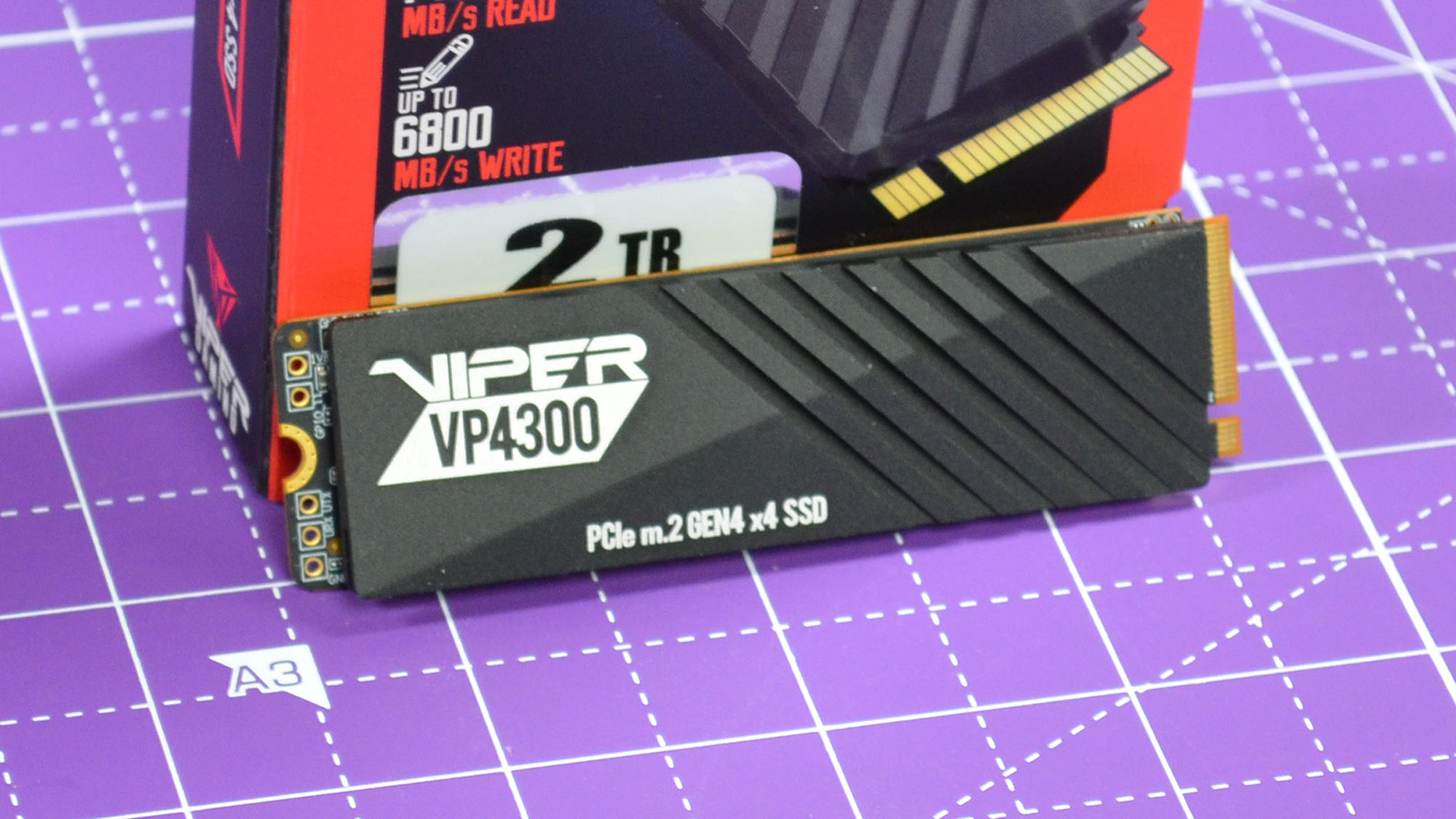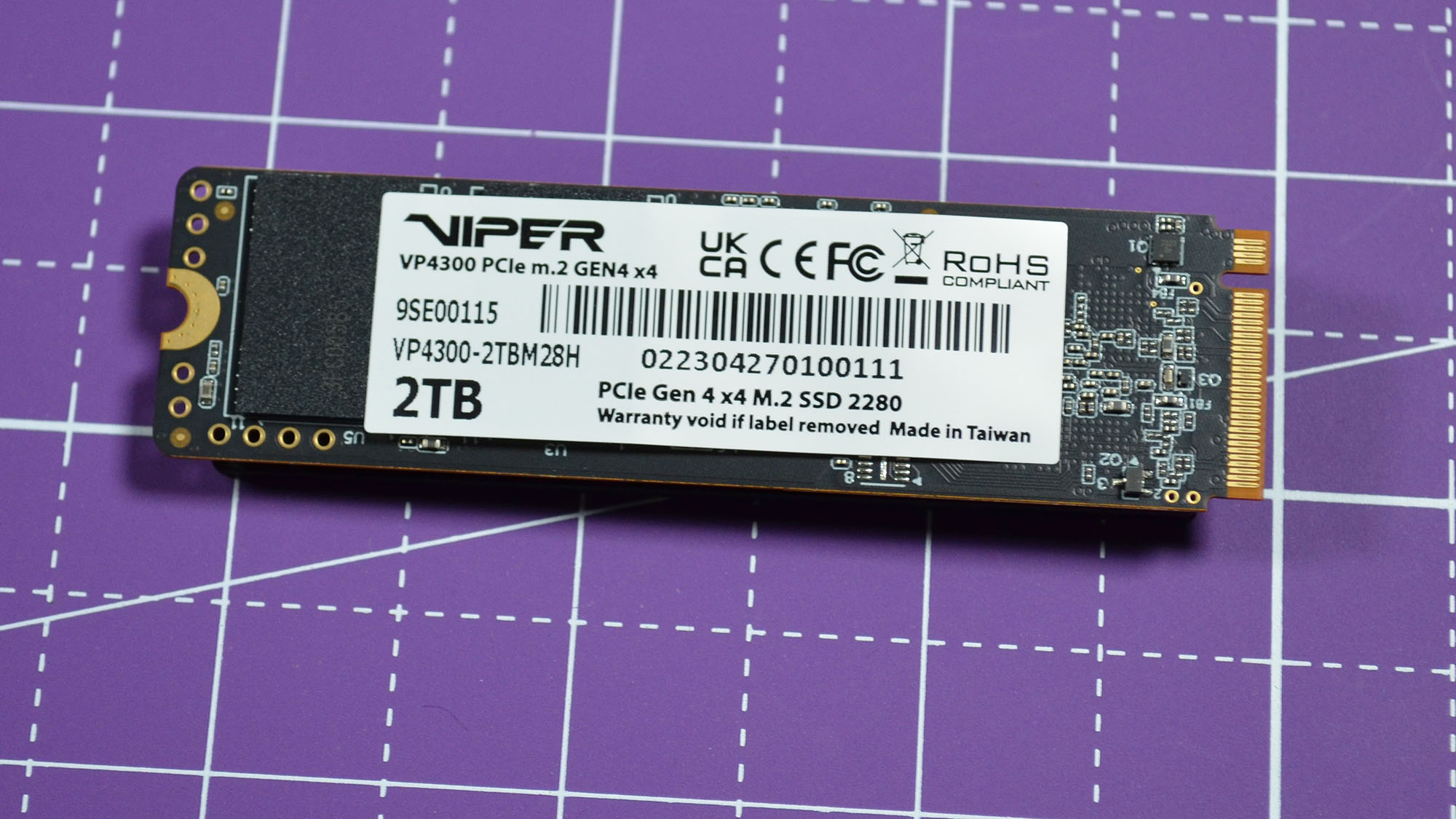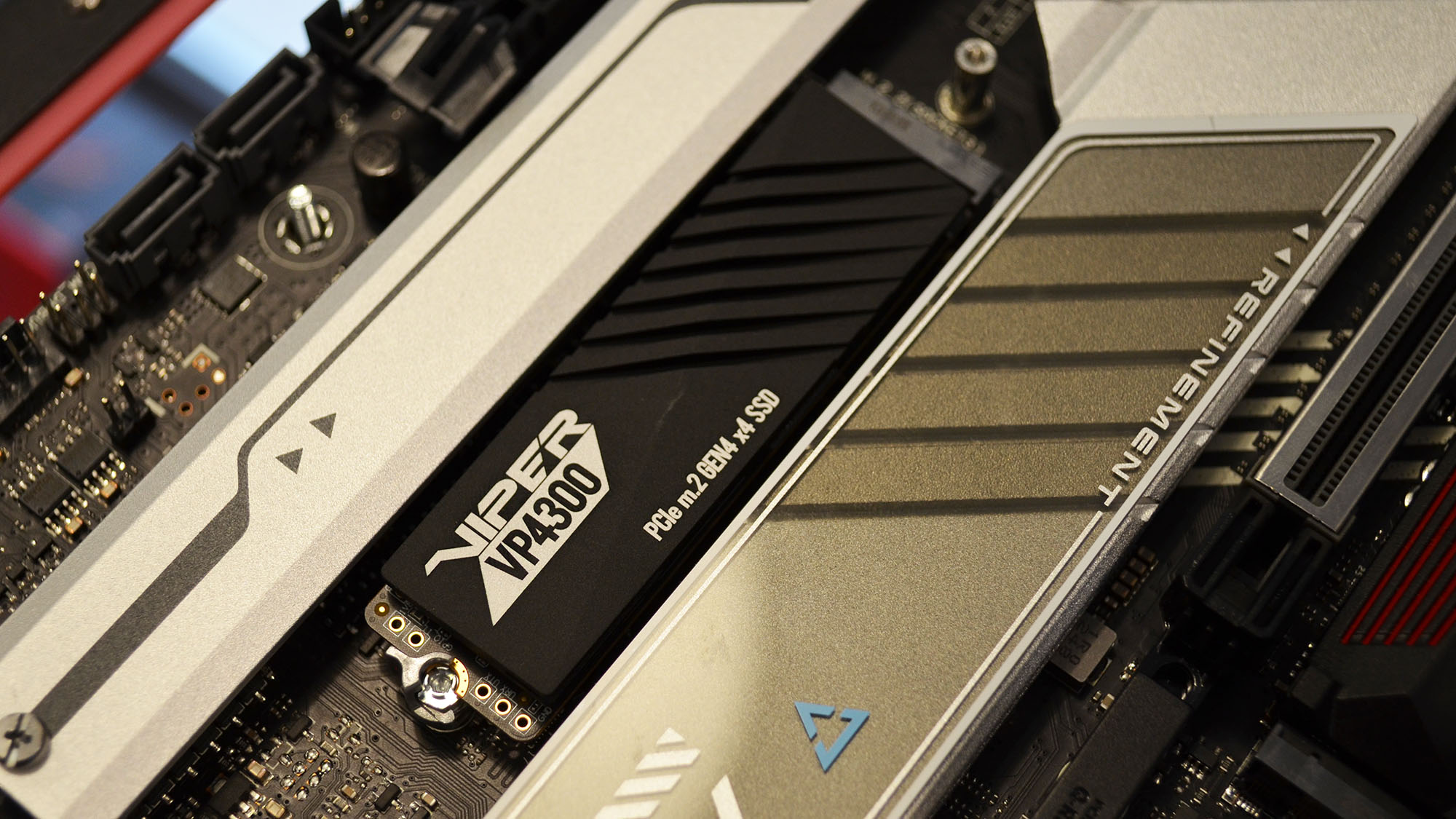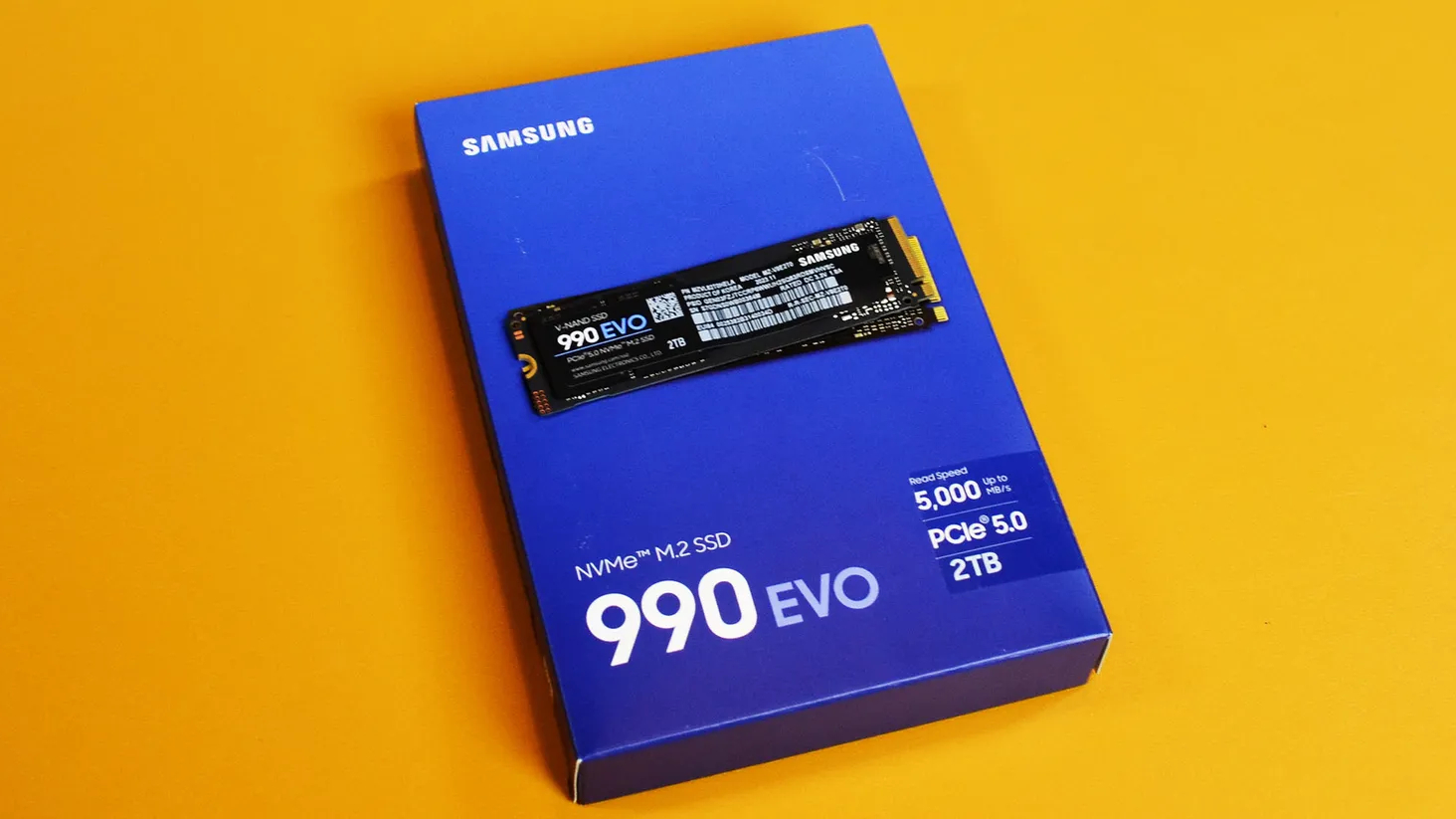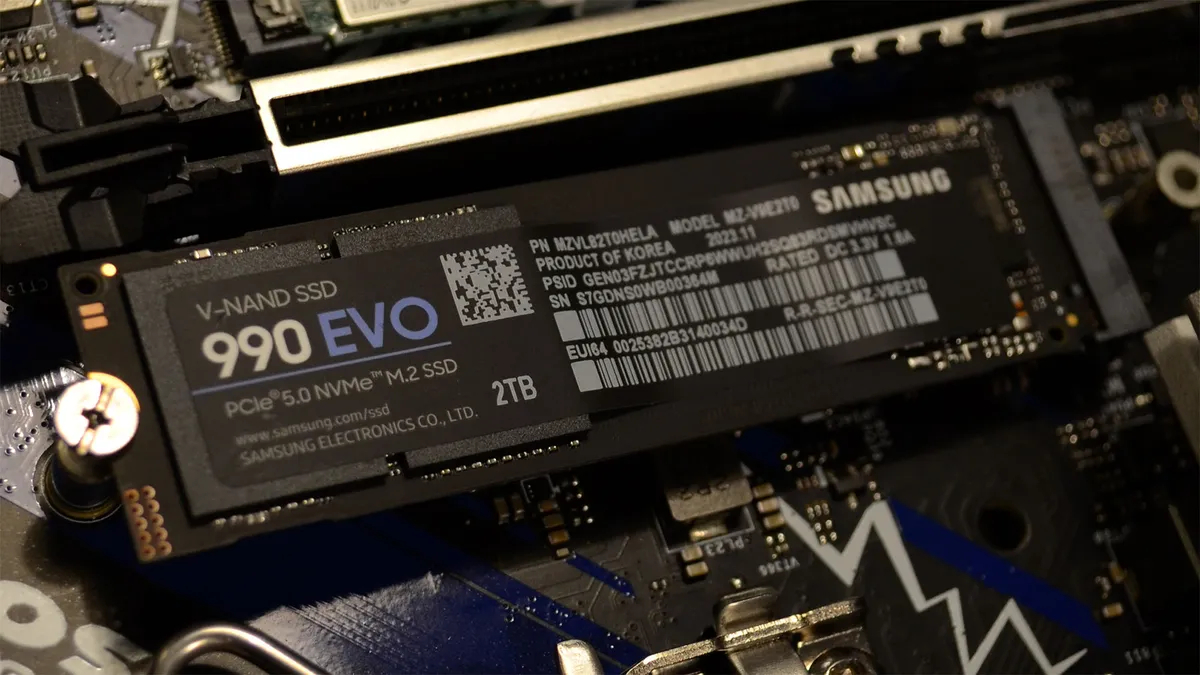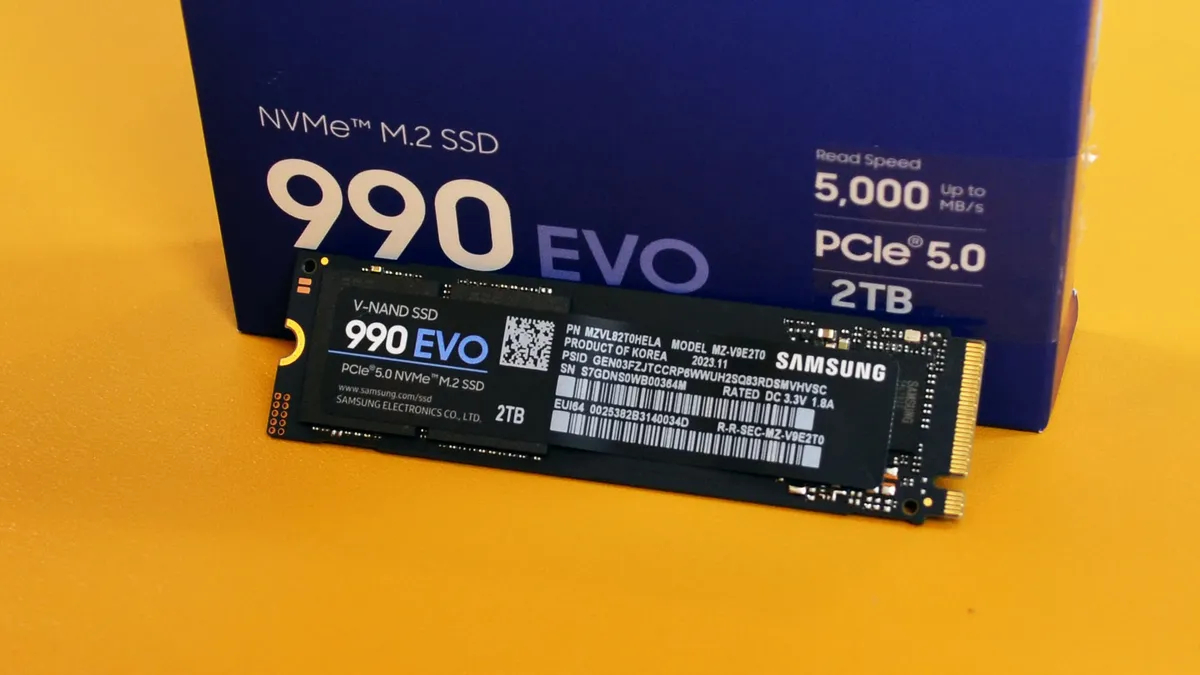Choosing the best M.2 SSD for your PC will greatly improve your system’s read and write speeds. A top-quality M.2 SSD is not only better in quality and build, but it can also enable faster file access, faster downloading, and snappier file transfers for your PC and even some video game consoles that support them. And if you want your computer to keep up with your data filing and accessing needs, it’s important to choose wisely.
Doing so hinges on a number of factors. Are you hoping to build the best gaming PC possible to reduce game loading times? Or do you need the best SSD for a professional workstation to write large amounts of data quickly?
The best M.2 SSD is just as important as having the best RAM and best processor to maximize performance. Luckily, there are many M.2 SSDs tailored for different users so you’ll find something to meet your budget and data needs. Plus, the best motherboards from major players like Gigabyte and MSI are going to have the latest PCIe M.2 slots for faster transfer rates.
We’re here to help you pick the best one for your needs. We’ve extensively tested a lot of M.2 SSDs over the years, and we’ve found our top picks for various use cases and budgets to help you find the best M.2 SSD for your device.

John has been working with computers since he was a teenager, long before he ever started writing about computer hardware or working on his Master’s degree in Computer Science. Needless to say, he knows computers inside and out, and he has personally tested (and retested) all of the SSDs on this page, regardless of whether he wrote our original review, and has validated the results you’ll find here.
The quick list
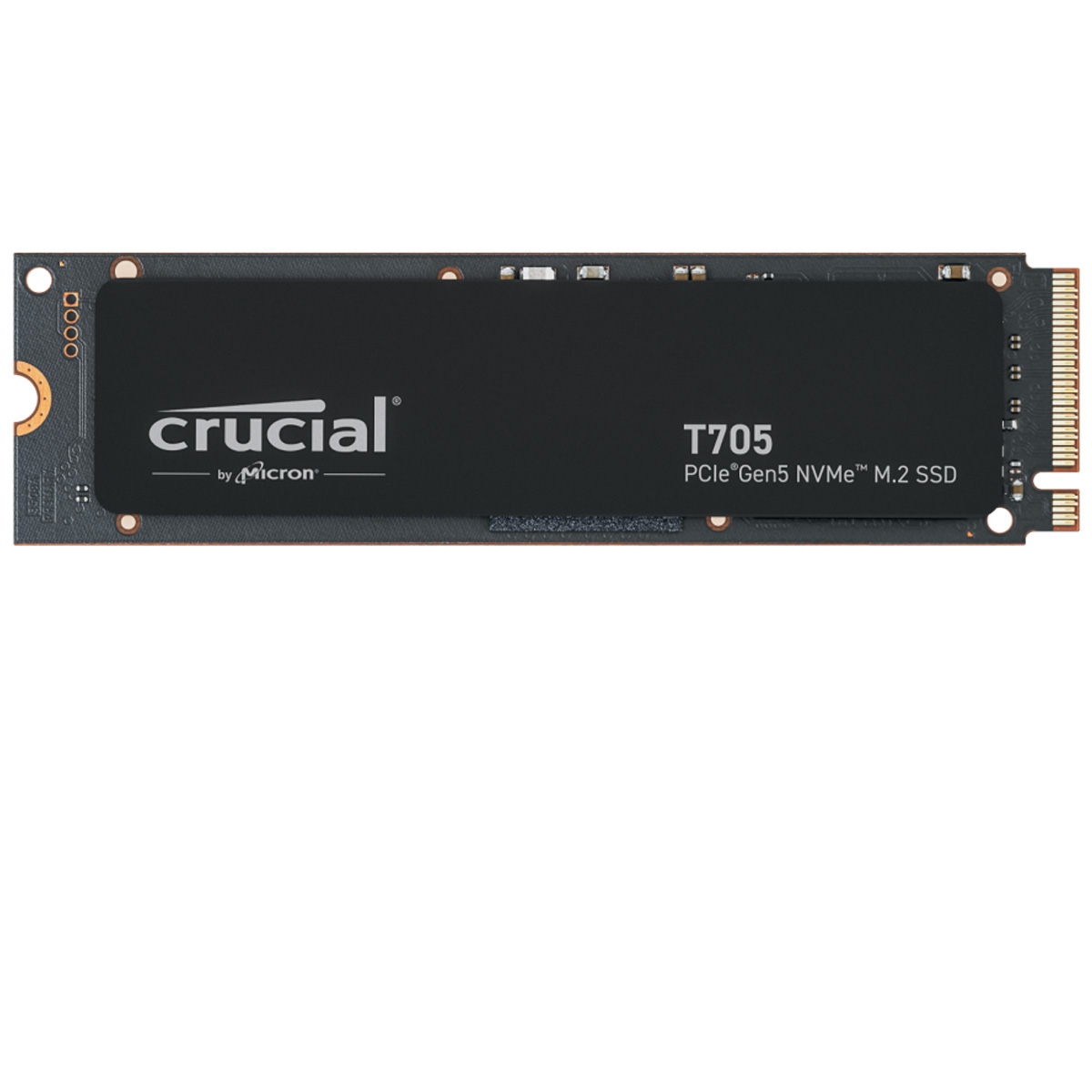
Best M.2 SSD overall
The Crucial T705 M.2 SSD has the fastest M.2 PCIe 5.0 speeds we’ve ever tested, and while it isn’t the cheapest SSD, it’s speed makes it well worth the investment.
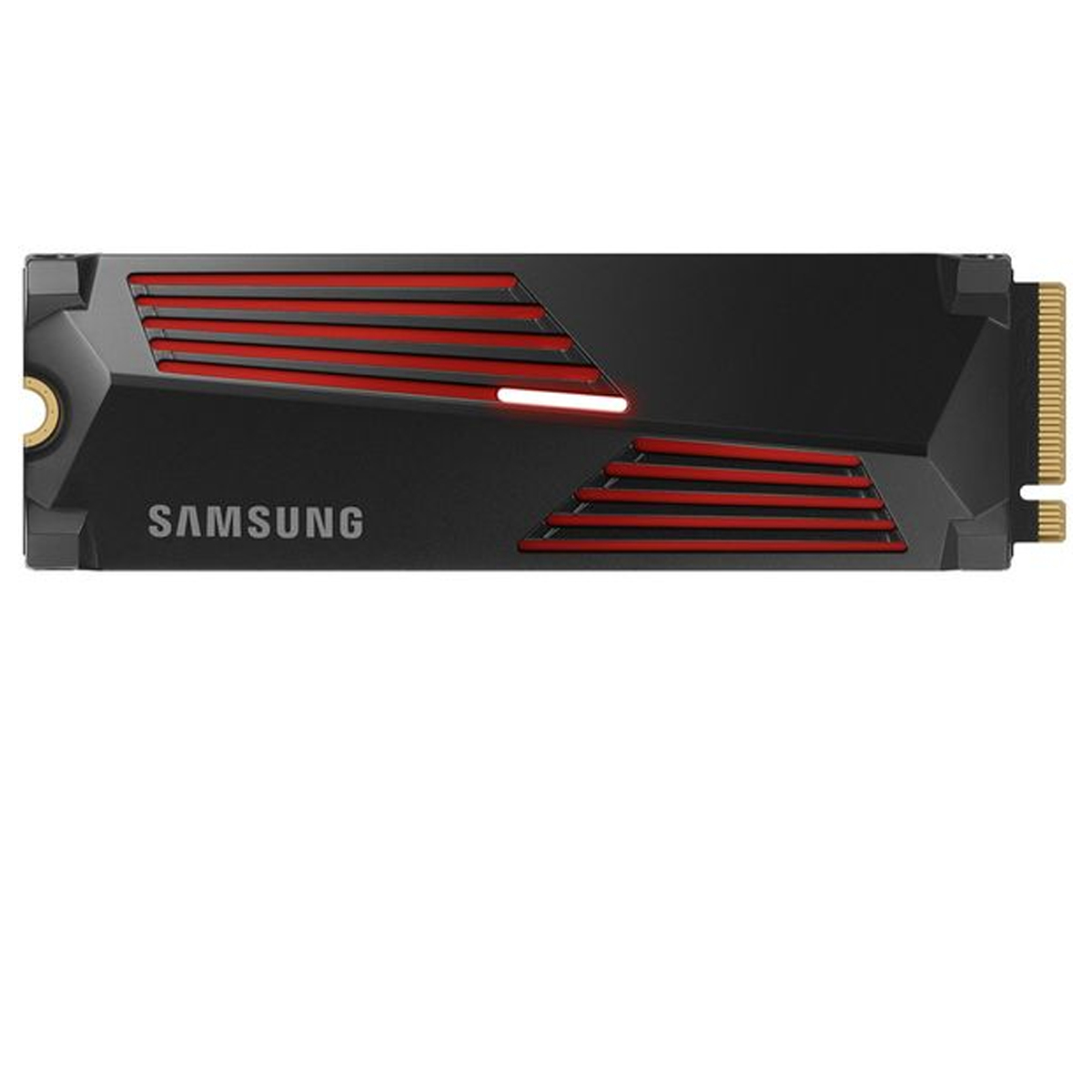
The best PCIe 4.0 M.2 SSD
Whatever your specific need, this is the SSD that will get the job done better than any other if you’ve only got access to PCIe 4.0 data lanes on your motherboard.
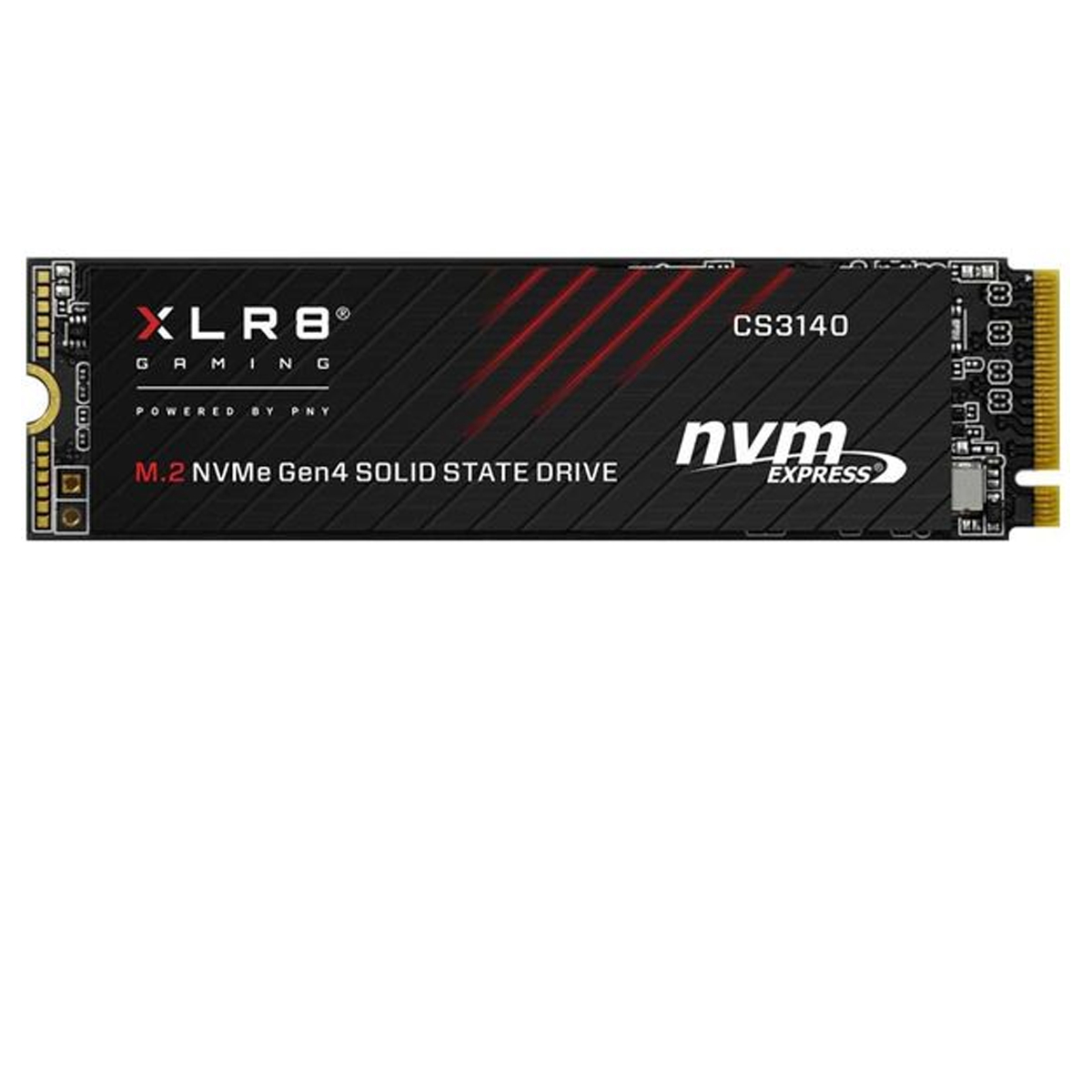
The best budget gaming M.2 SSD
Not only does this M.2 SSD offer fantastic performance pretty much across the board, it’s much cheaper than rival gaming SSDs.
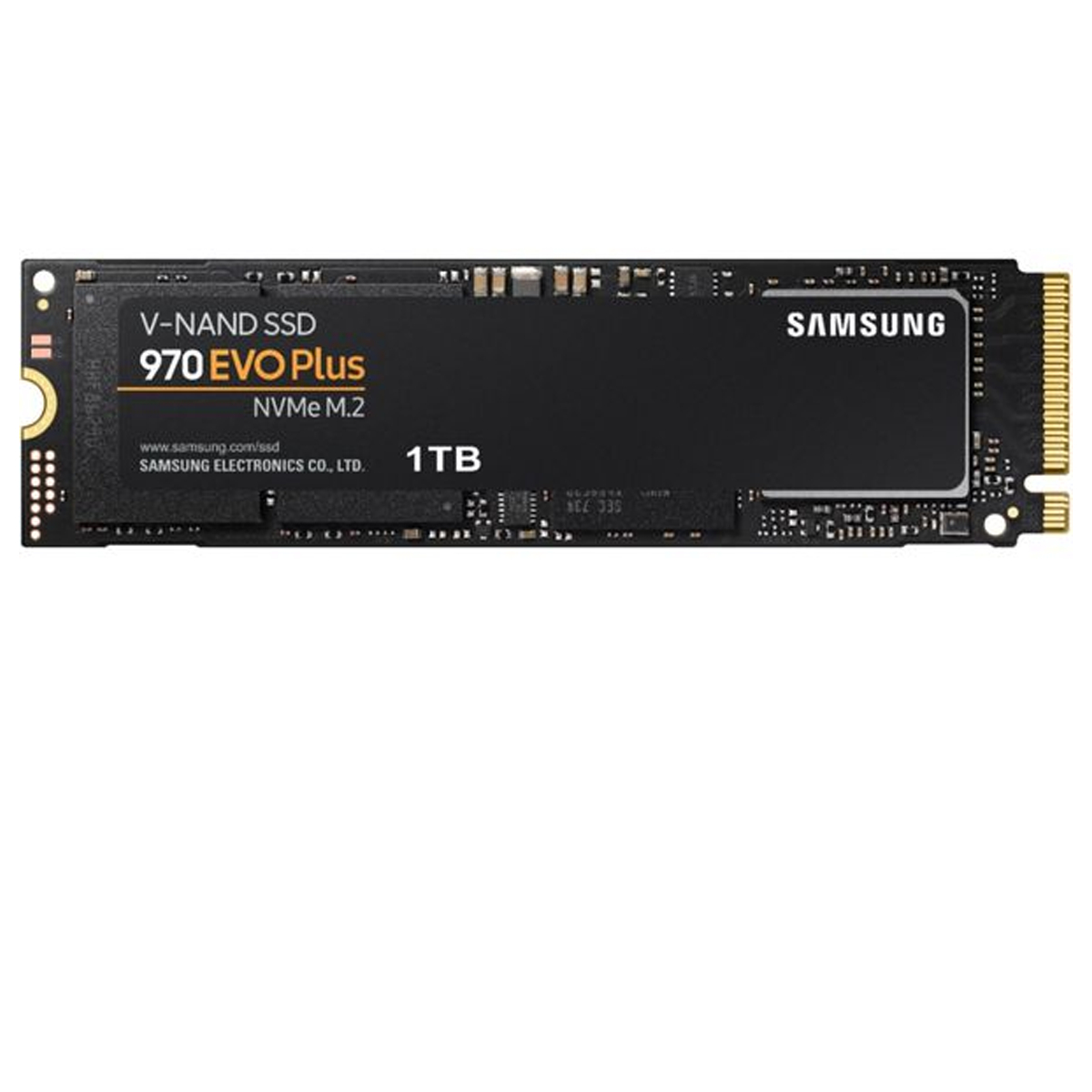
The best PCIe 3.0 M.2 SSD
We might be moving on to PCIe 5.0 soon, but this PCIe 3.0 SSD still has a place in your PC, especially as an affordable storage solution.
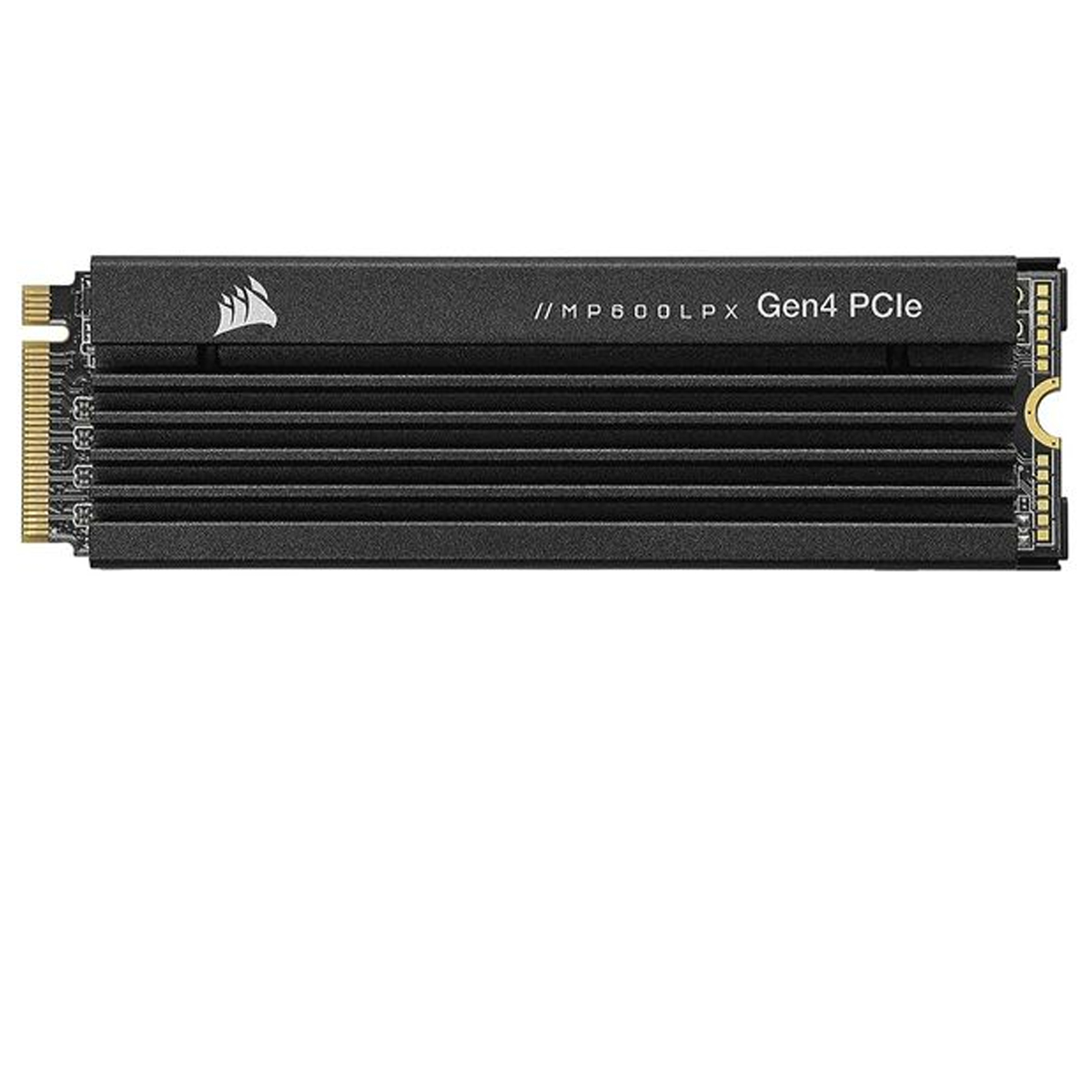
The best gaming M.2 SSD
The Corsair MP600 Pro LPX is arguably the best PCIe 4.0 SSD on the market for gaming, and its PS5 compatibility only sweetens the deal.
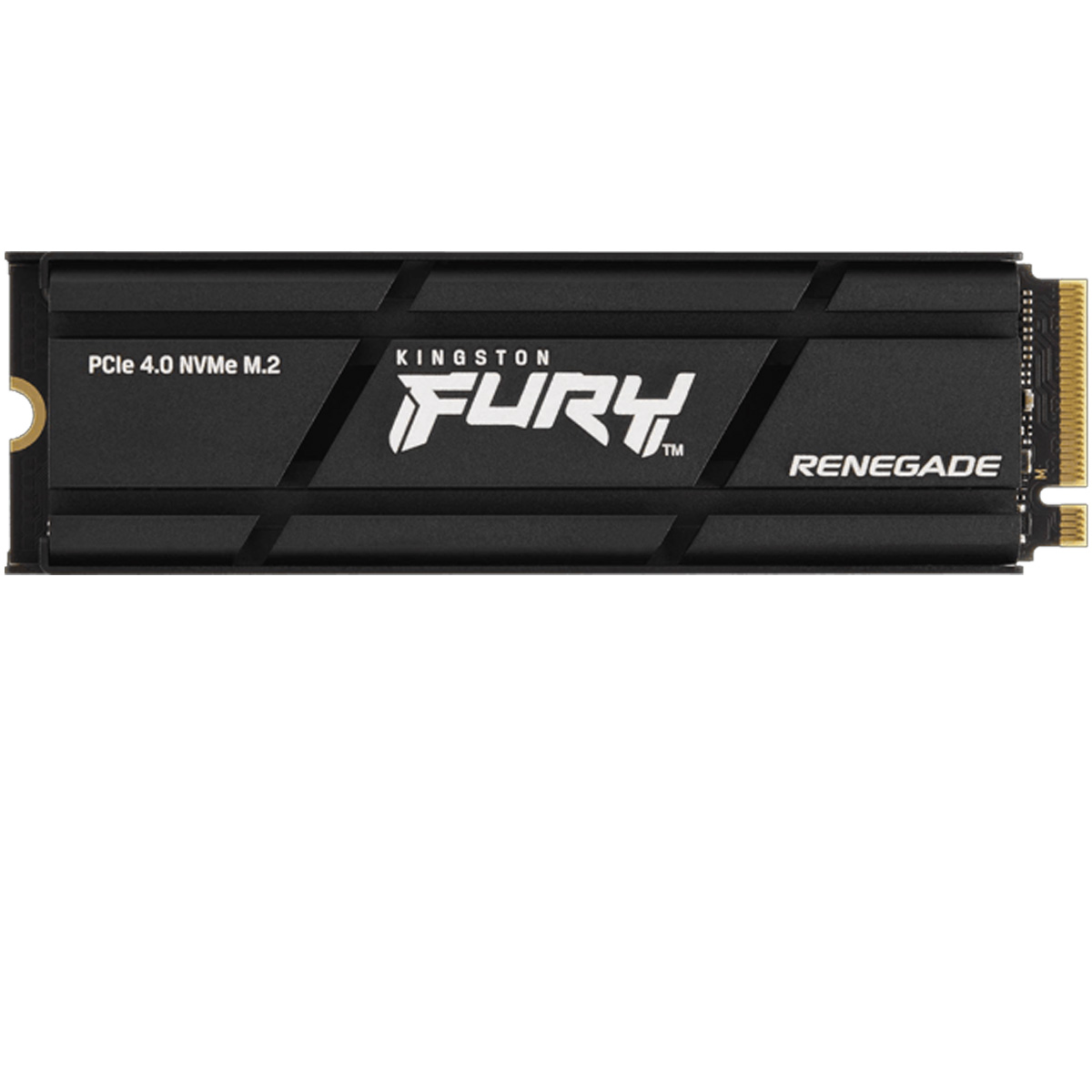
6. Kingston Fury Renegade
The best M.2 SSD for PS5 gaming
The Kingston Fury Renegade PCIe 4.0 SSD is perfect for PS5 consoles thanks to its outstanding read speeds, heatsink option, and price.
Click here for more options
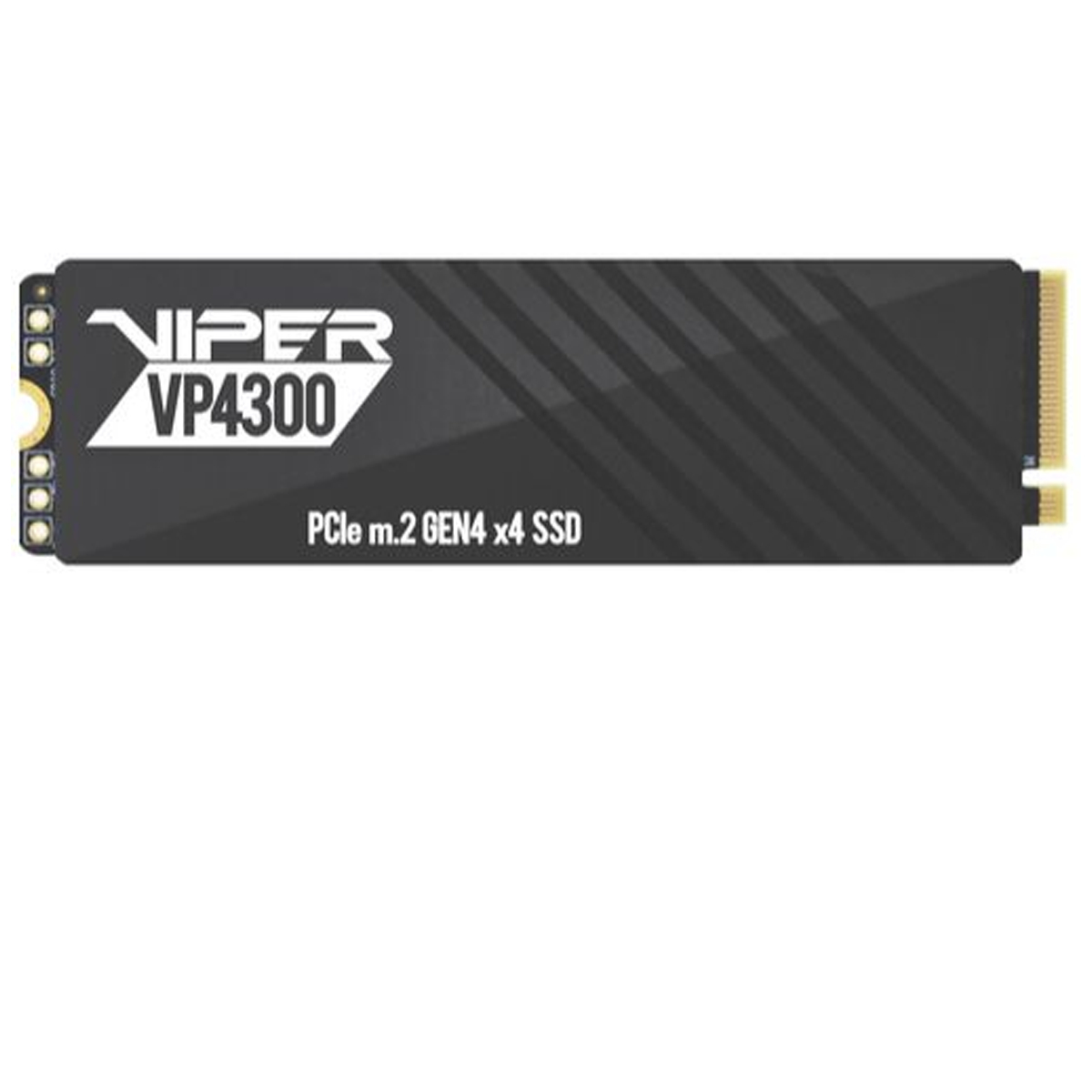
The best high-endurance M.2 SSD
If you want a high-performance M.2 SSD that goes the distance, the Viper VP4300 will still be running strong long after its rivals falter.
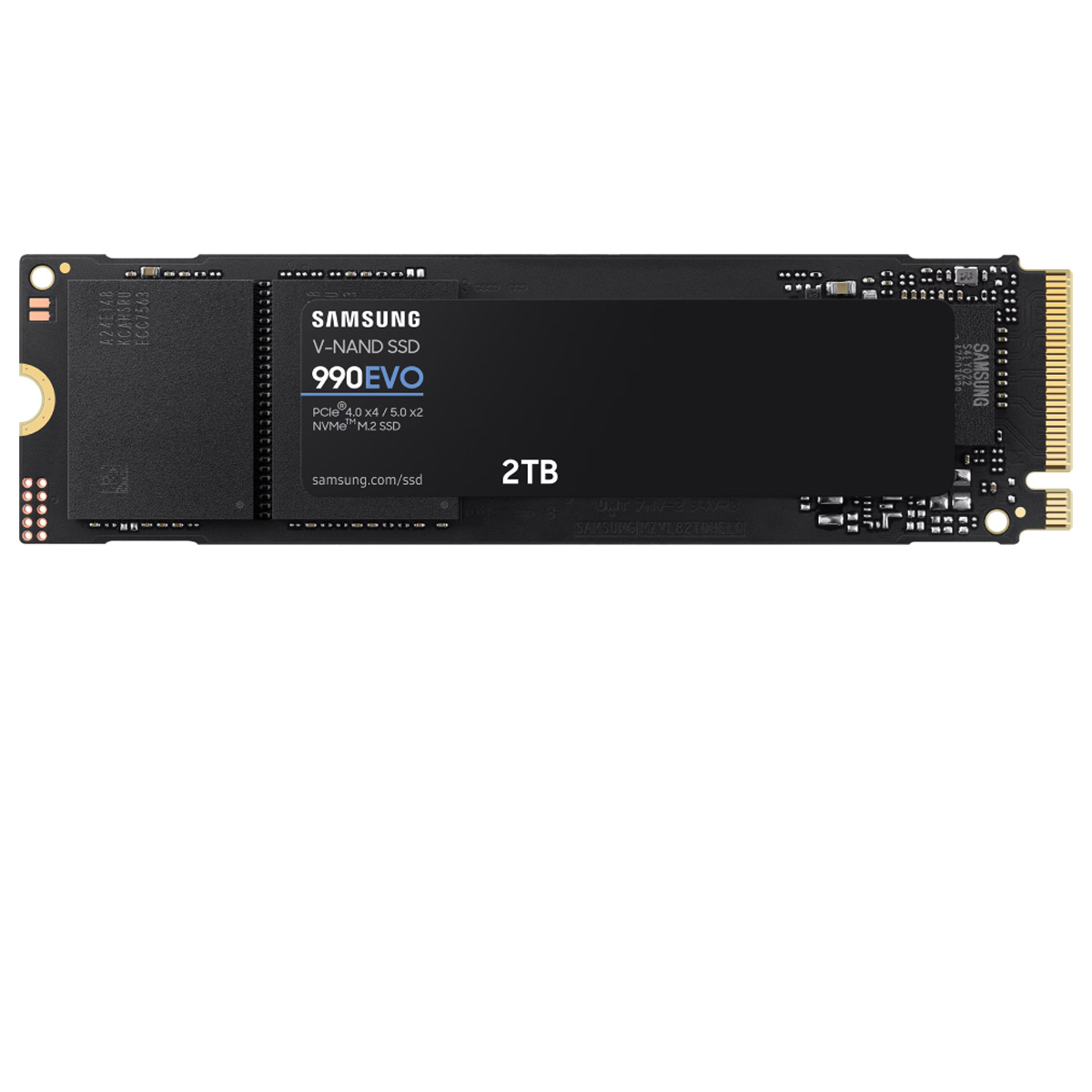
The most versatile M.2 SSD
The Samsung 990 EVO is a reliable, efficient PCIe 5.0 SSD ideal for laptops, PS5, and PCs. It offers solid speeds, a flexible hybrid interface, and improved power efficiency.
The best M.2 SSDs of 2024
Why you can trust TechRadar We spend hours testing every product or service we review, so you can be sure you’re buying the best. Find out more about how we test.
We’ve extensively tested each of my best M.2 SSD picks on this list, so you can rest assured that each of these M.2 SSDs will give you the best performance regardless of circumstance.
The Best M.2 SSD overall
Crucial’s T705 is one of the fastest SSDs currently available, offering incredible PCIe 5.0 speeds. It’s ideal for gamers and content creators looking for the fastest loading times and data transfer speeds but requires a compatible motherboard and CPU to unlock its full potential.
The T705 comes in 1TB, 2TB, and 4TB variants to appeal to most buyers. There’s no compromise on performance, and it delivers official sequential read speeds of 14,500 MB/s and sequential write speeds of 12,700MB/s. Our testing verified these claims, with T705 getting an impressive 14,390 MB/s sequential read speed and a 12,465 sequential write speed in CrystalDiskMark 8 to outscore the competition.
Powerful PCIe 5.0 SSDs have some drawbacks, so it’s worth planning accordingly if you want the best performance. They generate intense heat, and it’s worth getting the T705 with the heatsink or using a cooling fan to ensure it performs flawlessly. Only the latest Intel and AMD motherboards and processors support PCIe 5.0, and we recommend that you check the specs beforehand to ensure compatibility before splashing your cash.
This SSD is compatible with the PS5 and PS5 Pro, but you won’t experience its speeds because the consoles don’t support PCIe 5.0. You’ll be better off with the best PS5 SSDs, like the Samsung 990 Pro and Kingston Fury Renegade, which operate on PCIe 4.0 and get the job done for less.
Durability is excellent despite its high performance, and the T505 includes a five-year limited warranty and a 600 to 2400 TBW rating, depending on the size. It’s worth its hefty price tag for its phenomenal performance and includes a one-month Adobe Creative Cloud All-Apps plan to sweeten the deal.
Read the full Crucial T705 SSD review
The best PCIe 4.0 M.2 SSD
Samsung‘s 990 Pro M.2 SSD garnered attention upon its announcement, primarily due to its adherence to the existing PCIe 4.0 standard instead of the anticipated PCIe 5.0. However, its performance, nearly maxing out the PCIe 4.0’s potential, silenced many naysayers. For gamers, it boasts unparalleled read speeds; for creative professionals, its write speeds shine, especially during intensive tasks.
A standout feature: the 990 Pro’s sequential writes significantly outpace both its predecessor and competitors. Additionally, it showcases impressive read speeds, nearing PCIe 4.0’s maximum of 8,000MB/s.
Tests revealed the 990 Pro surpassing the 980 Pro, transferring a 10GB file about 9% quicker and copying a large folder roughly 32% faster. Such prowess translates to quicker game loads and swift app startups. This includes PS5 performance as well, where we were able to copy a 123GB game roughly 84% faster using the Samsung 990 Pro compared to the console’s storage drive.
However, the 990 Pro comes with its caveats. Its current limited capacity options might deter some, though we anticipate more choices soon. Additionally, while its price matches high-performance PS5 SSDs, it sits higher than budget-friendly SSDs like the Adata XPG SX8200. Those strictly budget-focused might consider the more affordable Samsung 980 or 970 Evo.
In essence, the 990 Pro caters to a niche demanding peak performance. Until PCIe 5.0 SSDs really hit the scene, it remains a top-tier choice for enthusiasts and professionals alike.
Read the full Samsung 990 Pro review
The best budget gaming M.2 SSD
The PNY XLR8 CS3140 M.2 SSD is one of the best SSDs around, both for gamers and PC enthusiasts alike. Available in three capacities—1TB, 2TB, and 4TB—this SSD is a great swan song for the PCIe 4.0 era as PCIe 5.0 SSDs start to roll out.
While PCIe 4.0 SSDs have a theoretical maximum speed of 8,000MB/s, the PNY XLR8 CS3140 pushes right up to that line with a rated sequential read speed of 7,500MB/s, along with a 6,850MB/s sequential write rating for its 2TB and 4TB capacities (5,650MB/s for 1TB).
Our tests reflect this for the most part, recording a sequential read speed of 7,256MB/s in CrystalDiskMark 8, with a somewhat lower than expected sequential write speed of 6,082MB/s in the same test. Interestingly though, it had the highest random write performance of any drive we tested (4,938MB/s), including the vaunted Samsung Pro 990, which had a roughly 17% slower random write rate (4,105MB/s). It also had the best average data copy rate of all the drives we tested recently with 1,733MB/s, so this is not only a great gaming SSD, it’s a fantastic all around performer at a great price.
Fortunately, PNY offers an optional heatsink that can be added to the drive to help keep temperatures in check, which is a must for a drive this fast. It also has a PS5-specific heatsink you can buy, making it an ideal pick for gamers aiming for optimized thermal performance on Sony‘s latest console.
So while there might be faster M.2 SSDs than the PNY XLR8 CS3140, its price-to-performance ratio makes it the best high-performance SSD for gamers and enthusiasts who don’t have the stacks to throw at Samsung or Corsair’s best SSD offerings.
The best PCIe 3.0 M.2 SSD
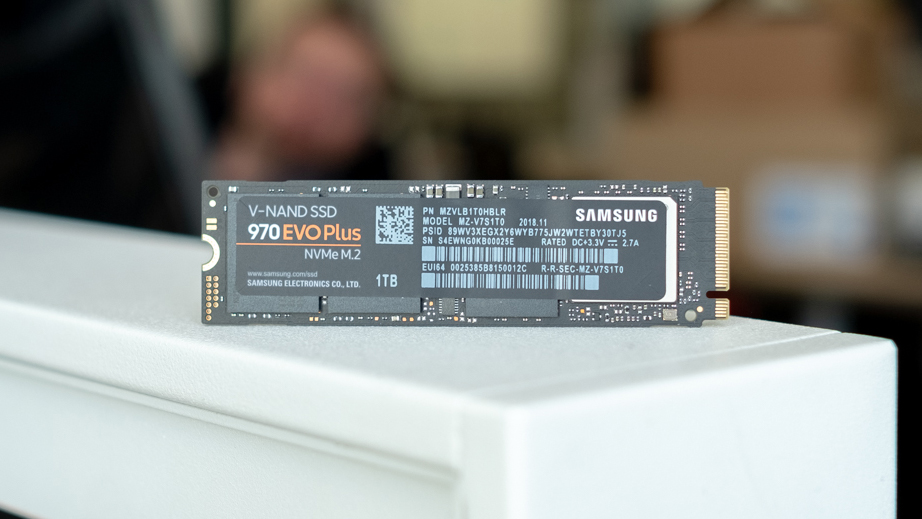
The Samsung 970 EVO Plus has some of the fastest sequential read and write speeds of any PCIe 3.0 M.2 SSD out there, making it an obvious contender for the best M.2 SDD on the list. Its random access performance is also the fastest of the PCIe 3.0s, easily making it the winner in the PCIe 3.0 bracket in terms of raw power.
The downside is its durability. The 970 EVO Plus has the lowest durability as measured by MTBF, rating only 1,500,000 hours, and its TBW rating at 2TB is 1200, matching the SN750, but lagging the XPG SX8200. At 256GB, it scores a rather low 150, the lowest of the three PCIe 3.0 contenders.
It doesn’t come with an option for a built-in heat sink, so any heat it generates needs to be bled off with additional cooling solutions. It does use Dynamic Thermal Guard technology to help regulate its core temperature as well as a hardware heat spreader and nickel-coated controller. It’s not a heatsink, but it’s something.
Of all the M.2 SSD’s on this list, the Samsung EVO Plus is the most expensive, in some cases (against XPG SX8200, for example) by a good margin. If you have the money to spend and you want the fastest SSD your PCIe 3.0 board can handle, then you can’t go wrong with the Samsung EVO Plus.
Read the full Samsung 970 EVO Plus review
The Best Gaming M.2 SSD
The Corsair MP600 Pro LPX made waves in the SSD market when it launched with competitive pricing and unparalleled speeds, and that remains the case today. Its PCIe 4.0 x4 M.2 SSD credentials deliver lightning-fast speeds, outshining cheaper, slower PCIe 3.0 alternatives, and keeping up with the very best SSDs on the market. Some PCIe Gen 4 drives might appear similar in value but fall short in maximizing the bandwidth that the MP600 Pro LPX exploits.
Our tests on the 2TB capacity drive revealed remarkable speeds: sequential read and write speeds of 7,364MB/s and 6,870MB/s, respectively. This outpaces both the WD_Black SN850 and Samsung 980 Pro SSDs, even surpassing Corsair’s own advertised rates.
Its random read/write operations aren’t the best among PCIe 4.0 SSDS, so this SSD is best suited for loading very large files like video games, large media files, or as a boot drive.
Corsair offers various cooling options for this drive, with the MP600 Pro LPX tailored with a low-profile heatsink fit for the PS5.
Get the best deals on Corsair products with our Corsair coupon codes.
Read the full Corsair MP600 Pro LPX review
The best M.2 SSD for PS5 gaming
The Kingston Fury Renegade is perfect for gamers wanting the fastest loading times on PCs and PS5s because of its blistering speed. It comes in sizes between 500GB and 4TB and offers outstanding longevity with superior durability ratings to many rivals.
Kingston says the Fury Renegade can reach 7,300MB/s sequential read speeds and 7,000MB/sequential write speeds on PC. We tested it with Sony’s official SSD benchmark tool, and it surpassed the competition with a best-in-class 6,500MB/s read speed. Its real-world performance mirrored its stats. Loading times were almost instant at under 10 seconds, and it took around a minute to copy large games like God of War: Ragnarok and Metro: Exodus from the internal SSD.
Installing the Fury Renegade into your PS5 is a breeze, and it includes a heatsink to help keep temperatures manageable. The rugged aluminum heatsink keeps it cool, and its 10.5mm height easily fits into the PS5s M2 slot to ensure smooth performance. You can easily unclip the heatsink if you’re using the Fury Renegade on a PC with limited space. However, it’s advisable to keep it on to ensure the best thermal performance.
You won’t need to stress about durability because this SSD is rated at an excellent 2,000,000 hours MTBF and includes a limited five-year warranty. The “terabytes written” spec estimates how much data you can write onto a drive before the cells degrade, and the Fury Renegade ranges between a higher-than-average 500 and 4000 TBW, depending on its size, so it should last for countless gaming sessions.
Read the full Kingston Fury Renegade SSD review
The best high-endurance M.2 SSD
The Patriot Viper VP4300 is a major contender for the best SSD crown with its impressive sequential and random speeds, fast copy operations, and low operating temperature. But most of all, this SSD is built for the long haul with a best-in-class 1000TBW endurance rating for a 1TB drive, and a 2000TBW rating for a 2TB one.
This SSD also doesn’t skimp on features. It provides two cooling options for the drive: a 4mm thick aluminum heatsink and an ultra-thin graphene label, which is perfect for tight spaces in like the best thin and light laptops.
Available in 1TB and 2TB capacities, the VP4300 offers rated speeds of up to 7,400MB/s read and 6,800MB/s write, which are pretty much spot on in our testing (where we recorded 7,389MB/s and 6,799MB/s sequential read and write speeds, respectively).
It’s slightly more expensive than similar capacity SSDs, but it definitely compensates for this with its performance and durability, as well as the included “heatshield” options. These work exceptionally well, and this SSD has the lowest recorded max temperature (about 57℃) of any of the high-end PCIe 4.0 SSDs we’ve tested recently, including those on this list.
Tech-wise, the VP4300 is comparable to Samsung 980 Pro and WD Black SN850, as it employs a high-end PCIe 4.0 x4 SSD controller and premium NAND flash, the latter of which ensures robustness and efficiency, but it’s performance is considerably outperforms those two SSDs, and really only struggles to keep up with the Samsung 990 Pro in terms of random data operations, blowing past most of its other competitors in that regard.
Ultimately, this SSD is about delivering fast, consistent performance for the entirety of its very long life, so if you’re looking for an SSD to perform constant data operations rather than just load up the best PC games that you’ll never actually uninstall then the Patriot Viper VP4300 is the M.2 SSD you’ve been looking for.
Read the full Patriot Viper VP4300 review
The best M.2 SSD for efficiency
Samsung’s 990 EVO is a solid performer designed for reliability and efficiency rather than the fastest speeds. It’s ideal for laptops, the PS5, OEMs, and prebuilt PCs and offers impressive versatility with PCIe 4.0 and 5.0 compatibility to work on most new motherboards.
You can expect acceptable speeds for everyday use with claimed 5,000MB/s sequential read and 4,200MB/s sequential write rates. Our testing matched these figures, with the 990 EVO achieving a 5,082.24MB/s sequential read speed and 3,750.68MB/s sequential write speed in CrystalDiskMark 8.
This SSD’s hybrid interface provides excellent flexibility but delivers PCIe 4.0 speeds across the board because it only utilizes two of the four PCIe 5.0 lanes. However, it’s still a safe bet if you’re looking for consistency and provides a degree of future-proofing for buyers looking to upgrade soon.
The 990 EVO’s new 5nm controller enhances efficiency, and Samsung makes the dubious claim of up to a 70% improvement over the previous model. In reality, it’s around 8% less when reading and 22% when writing sequentially, which should translate to improved laptop battery life. The heat spreader label offers decent thermal control, and you probably won’t need a heatsink if you plan on using the 990 EVO on a PS5 because of its reasonable read and write speeds.
Samsung’s robust software and lengthy warranty make the 990 EVO the perfect choice for buyers looking for durability. Samsung Magician includes various health monitoring and optimization tools to keep your SSD in great shape and supports AES 256-bit encryption and Opal security. The limited five-year warranty and 600/1200 TBW meet industry standards and provide peace of mind that you’ll get good service from the 990 EVO.
Read the full Samsung 990 EVO review
How we tested the best M.2 SSDs
To test the M.2 SSDs on this list, perform a number of benchmark tests on them to measure their sequential and random read speeds and their sequential and random write speeds. These include PassMark’s PerformanceTest Disk benchmark, CrystalDiskMark 8, 3DMark and PCMark 10, as well as our own, in-house SSD operation scripts to simulate and time the SSD’s speed when copying files.
We also make sure to measure the SSD’s heat and controller-reported data on how much data has been written to the drive and how much life the drive has left before failing to determine whether the manufacturer’s claimed endurance measures up to the time the drive itself estimates it has left.
If the drive is compatible with a video game console, we will also measure the SSD’s speed both with the console’s own benchmarks but also through file copy operations to and from the main console storage drive.
Finally, we use the drive as our primary SSD in our workstation PC (and video game console, if appropriate) to assess the real world use of the drive.
